Carrier oils – what are they?
In the world of organic cosmetics and holistic skincare carrier oils have been occupying ever more important positions. These golden elixirs, extracted from oilseed plants, have become an integral part of the daily skincare and hair care routine among millions of people around the world. But what kind of substances are they and why are they so valuable? How are they different from essential oils? Keep reading till the end to find out these among many other answers related to carrier oils sand their valuable properties.
1. What kind of substances are carrier oils?
Plant-based oils, also known as base oils or carrier oils are natural products, extracted from the seeds, kernels or the fruits of different plants. They are remarkably rich in valuable chemical elements like vitamins, minerals and antioxidants, which makes them an important ingredient in many cosmetic formulas.
There are different methods of carrier oils extraction but cold press extraction is considered to have most advantages. In consists of pressing the raw material at low temperatures (under 49°C). This allows for maximal preservation of all nutrients and valuable chemical ingredients.
2. Essential oils and carrier oils – is there any difference between them?
The direct answer to this question is “Yes, absolutely!”. To start with, the two types of oils are extracted in different ways. As we already mentioned, base oils are most often extracted through the method of cold press, while most essential oils are extracted through steam distillation. The second difference refers to the parts of plants used. Carrier oils are extracted from fruits, kernels or seeds, whereas essential oils are extracted from flowers, stems and bark.
The third key difference lies in the specific content and properties of the two types of oils. Carrier oils contain fatty acids; they are relatively “soft” and can be applied directly on the skin. Despite their name, essential oils do not always have oily consistency. They do not contain fatty acids but are extremely rich in aromatic compounds, which give them their characteristic fragrance. They are also very concentrated and should always be diluted before use, otherwise they can cause skin irritation.
The final difference between carrier oils and essential oils refers to their specific use. Let’s have a closer look at the different ways you can use base oils.
3. The role of carrier oils sin aromatherapy
One of the most common applications of these plant extracts is in aromatherapy, where they are used in the key function of carrier oils, which means that they are used to dilute the heavily concentrated essential oils, making them safe to be used on human skin. Apart from that, they have their own benefits, which adds to the desired therapeutic effects.
The benefits of carrier oils used in aromatherapy are numerous:
● They improve the penetration of essential oils through the skin;
● They prolong the action of essential oils by slowing down their evaporation;
● They provide additional nourishment and skin hydration;
● Some carrier oils have their own aromatherapeutic properties, supplementing those of essential oils.
Carrier oils also facilitate a more even distribution of essential oils on the skin, which is of great importance for massage or other therapeutic procedures.
4. Other applications
Carrier oils are widely used not only in aromatherapy but in daily skincare and hair care. What follows are some of the main ways you can make use of their valuable properties:
Skin hydration and nourishment
Cold press extracts of oilseed plants are natural emollients, which means that they have skin softening and smoothing properties. They create a protective film on the skin surface, which keeps the moisture within and protects it against external irritants. Olive oil, avocado oil and shea oil are especially effective for dry and mature skin. They can be used alone or in combination with other ingredients to make home-made cosmetic products for face and body.
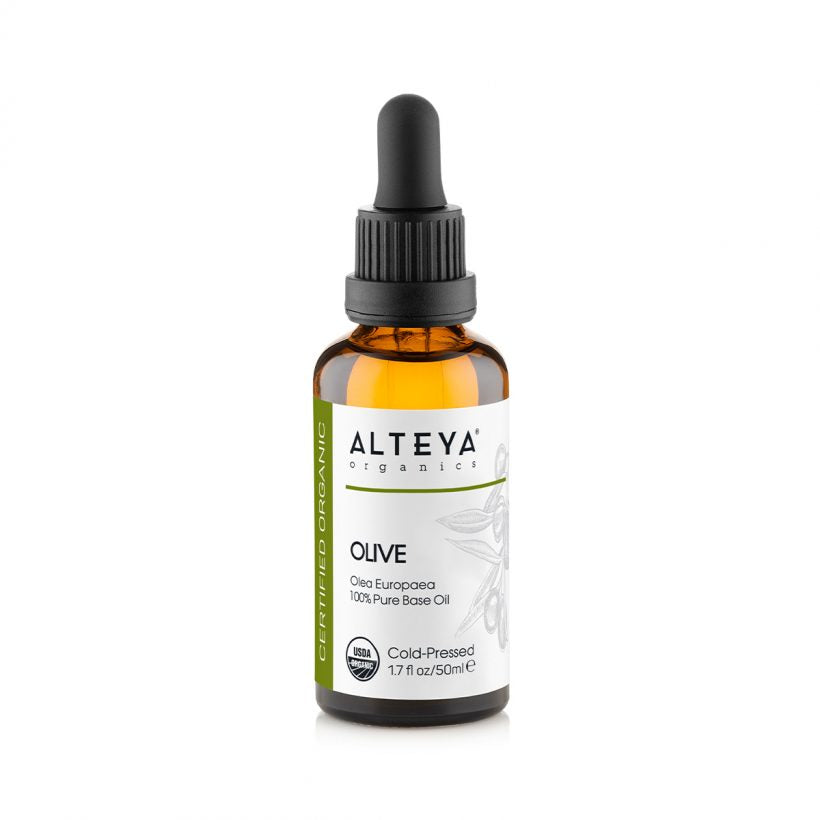
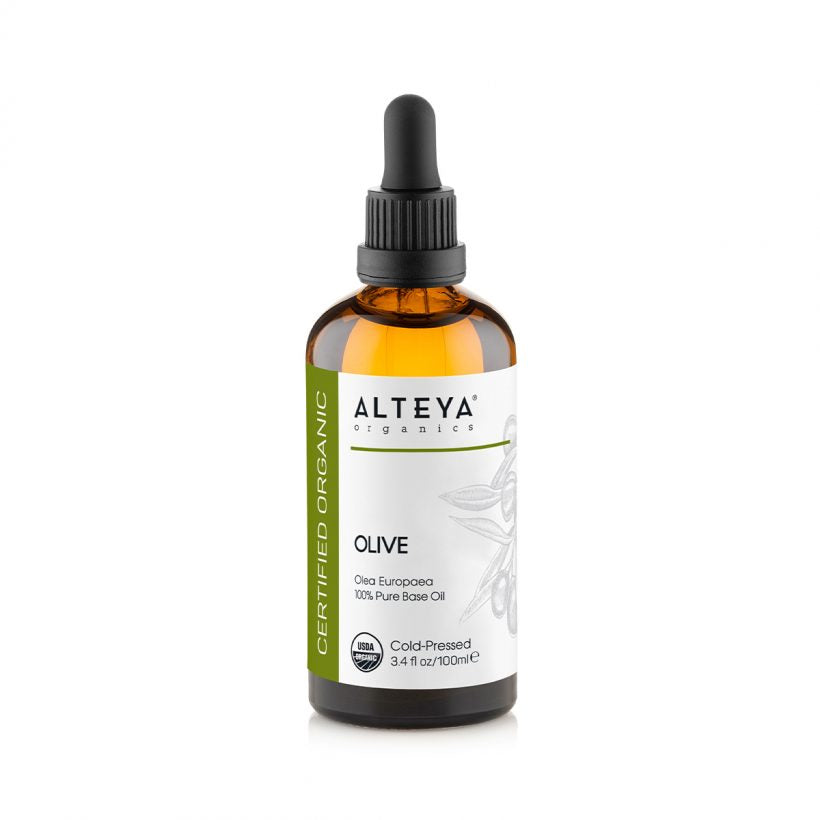
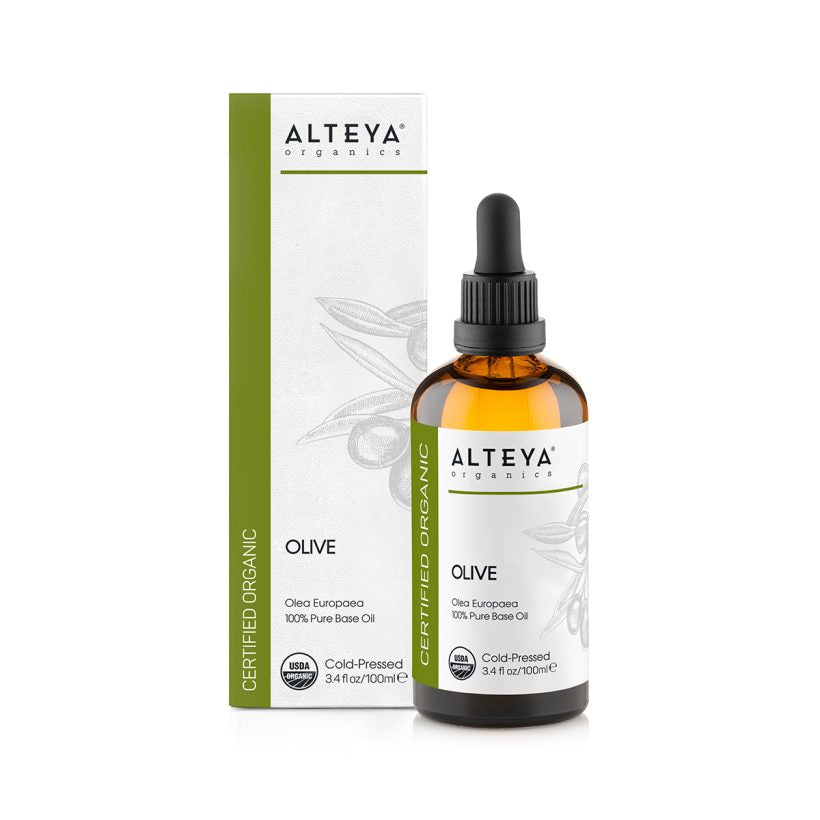

DESCRIPTION
/OLEA EUROPAEA/
Olive oil is by far the most versatile and widely used carrier oil with multiple purposes. It can be used individually or as a compound in home-made cosmetics, especially for nourishing and moisturizing dry and mature skin or makeup removal. It is also suitable for keeping healthy and beautiful hair. Olive oil is often used as a carrier oil and blends well with other oils.
Extraction method: Cold Pressed
Absorption rate: Average
Aroma: Strong
SUGGESTED USE
It may be used in skincare formulations or on its own. Can be used within most skincare formulas, including facial care preparations, soapmaking, massage oils and other body care and cosmetic products.
Skin Application—apply a few drops daily or as needed to entire face – on its own or after water-based treatments. Use only as directed on unbroken skin.
Hair Application—add a few drops on the scalp and hair lengths. Let it stay for 30 min to an hour. Then wash with shampoo.
INGREDIENTS
Olea Europaea (Olive) Fruit Oil*
*Certified Organic Ingredient
ADDITIONAL INFORMATION
For external use only. Keep out of reach of children. Avoid contact with eyes. If irritation occurs, discontinue use. Store in a cool, dry place, away from direct sunlight.
Hair care
Some carrier oils are often used as cosmetic products’ supplement maintaining a healthy and shiny hair look. For example, coconut oil easily penetrates in the hair structure and nourishes it from within, while argan oil decreases the appearance of split ends and gives the hair a shiny look; castor oil is known to be beneficial for stimulating hair growth.
Massage and relaxation
Oilseed plant extracts are ideal for body massage because they are excellent lubricants, while at the same time they provide the skin with valuable nutrients. Such a procedure has the potential to improve blood circulation, to reduce muscle tension and to facilitate body relaxation as a whole. Pure carrier oils massage is a good option for people who are intolerant of the strong smell of essential oils even when diluted, since the aroma of carrier oils is much more delicate and much softer, as we already mentioned.
5. Popular carrier oils and their cosmetic properties
Now that we have presented the main applications of carrier oils, let us look at some of the most widely used ones and reveal some of their valuable properties.
Almond oil
It is extracted from sweet almond kernels. This oil is rich in Vitamin E, Omega-6 fatty acids and protein. It is super nourishing and suitable for all types of skin, especially for dry and sensitive one. It is easily absorbed and has the potential to soften the skin and soothe skin irritation and inflammation.
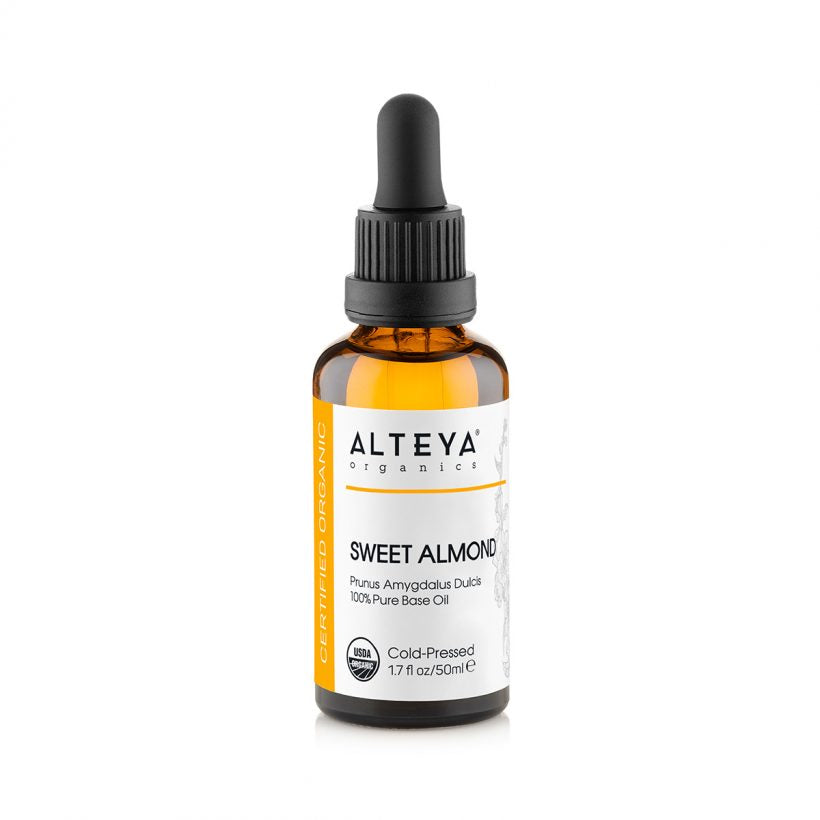
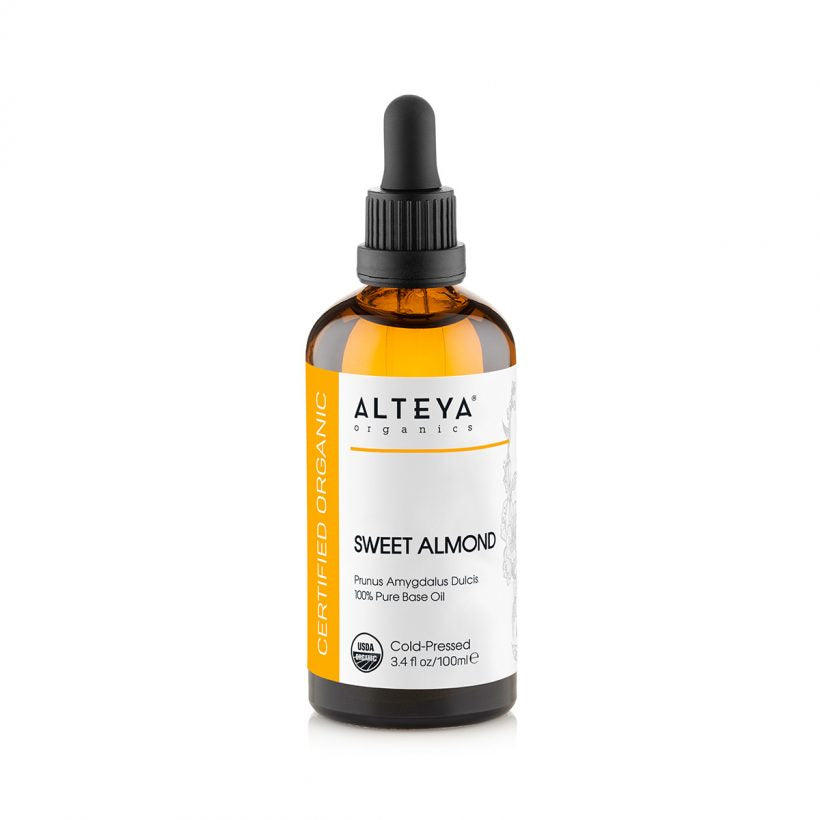
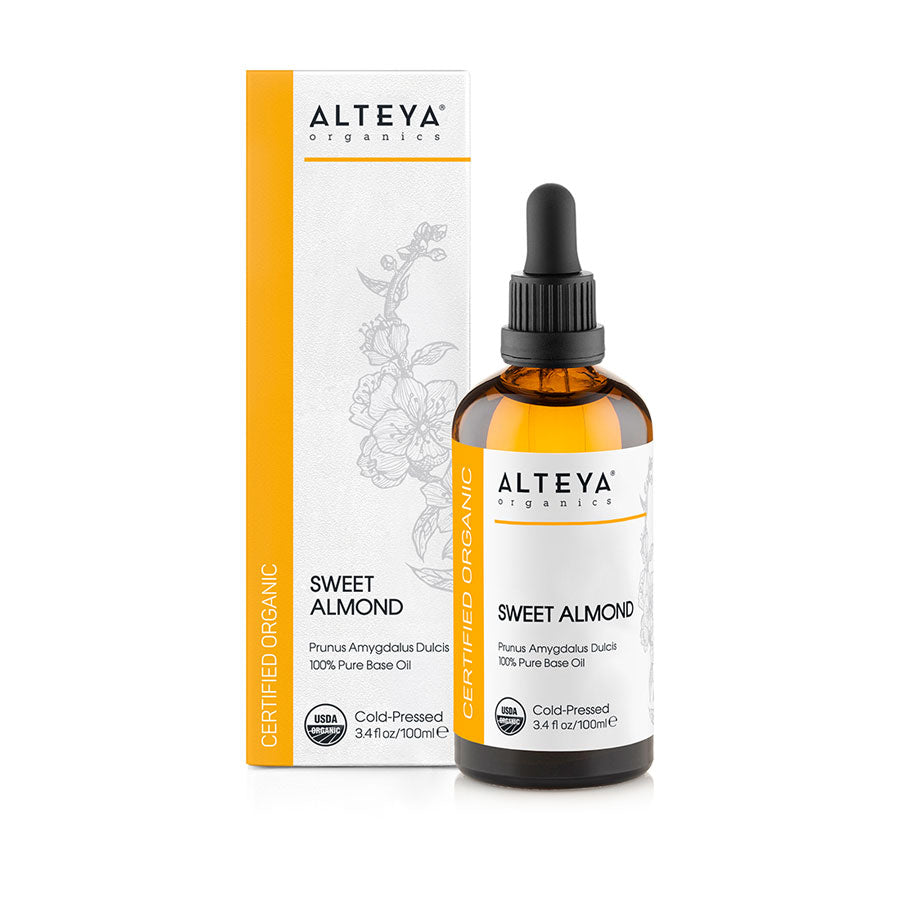
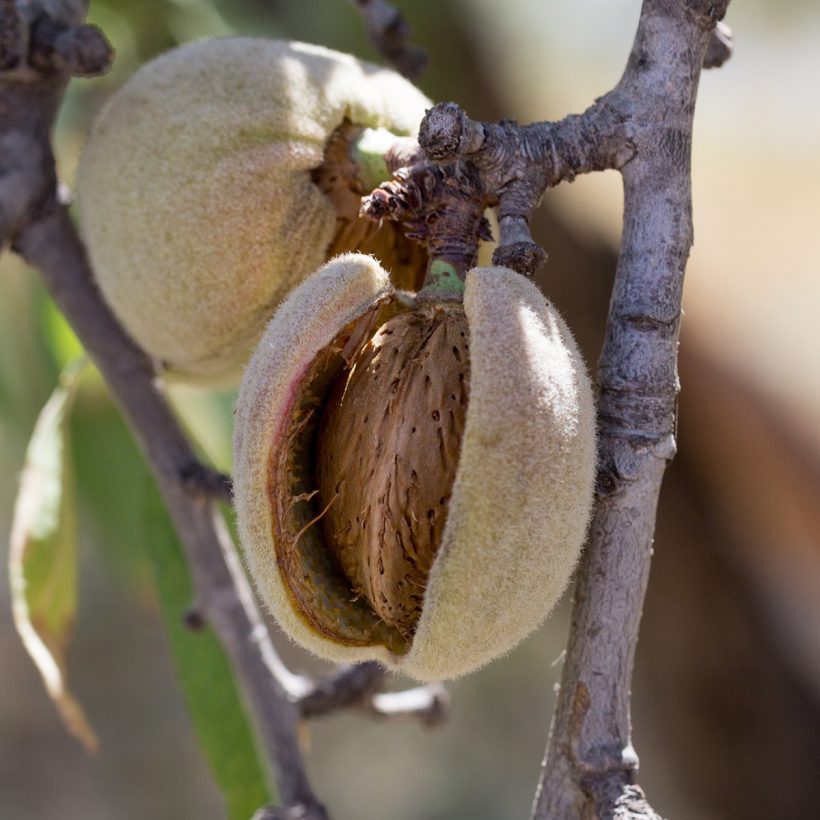
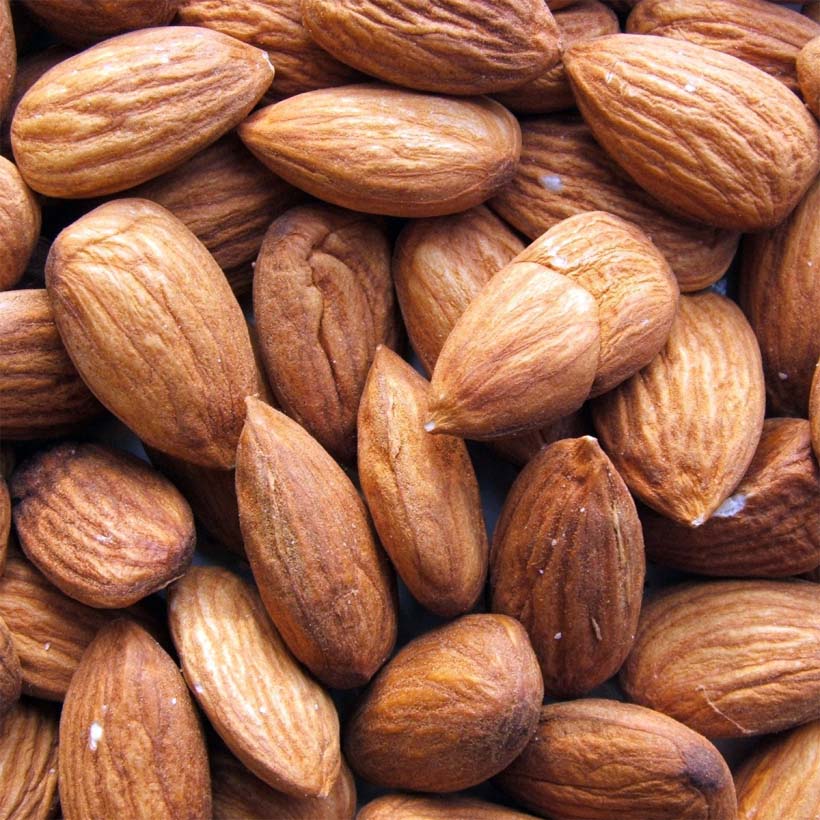
DESCRIPTION
/Prunus Amygdalus Dulcis/
Sweet Almond oil has been used since ancient times for skin and hair health and beauty. It is very rich in vitamins A and E, proteins, minerals and fatty acids. Almond oil makes skin smooth, soft and supple, promoting elasticity and vigor. It has very good effect on dry, sensitive, mature skin or flaking scalp.
Extraction method: Cold Pressed
Absorption rate: Average
Aroma: Light
SUGGESTED USE
It may be used in skincare formulations or on its own. Can be used within most skincare formulas, including facial care preparations, soapmaking, massage oils and other body care and cosmetic products.
Skin Application—apply a few drops daily or as needed to entire face – on its own or after water-based treatments. Use only as directed on unbroken skin.
Hair Application—add a few drops on the scalp and hair lengths. Let it stay for 30 min to an hour. Then wash with shampoo.
INGREDIENTS
Prunus Amygdalus Dulcis (Sweet Almond) Oil*
*Certified Organic Ingredient
ADDITIONAL INFORMATION
For external use only. Keep out of reach of children. Avoid contact with eyes. If irritation occurs, discontinue use. Store in a cool, dry place, away from direct sunlight.
Coconut oil
Coconut oil is most famous for its antibacterial and antifungal medicinal properties, but in fact, it is a multifunctional cosmetic product. It is rich in fatty acids (lauric acid in particular), which have skin nourishing and protective properties. It is an excellent moisturizer and thus can help with different medical skin conditions like eczema and psoriasis.
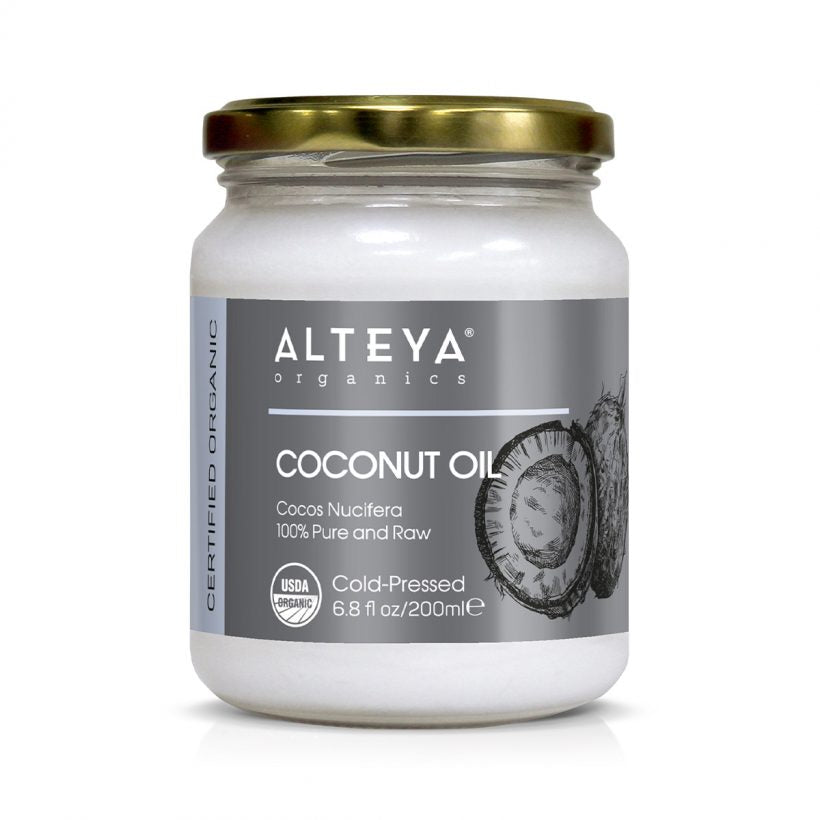
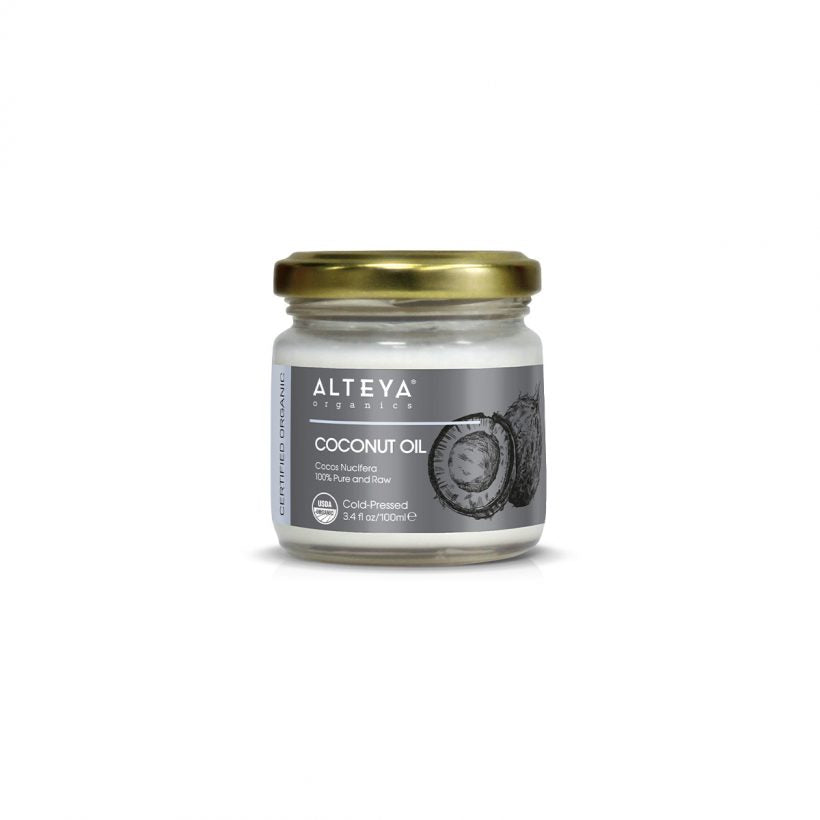
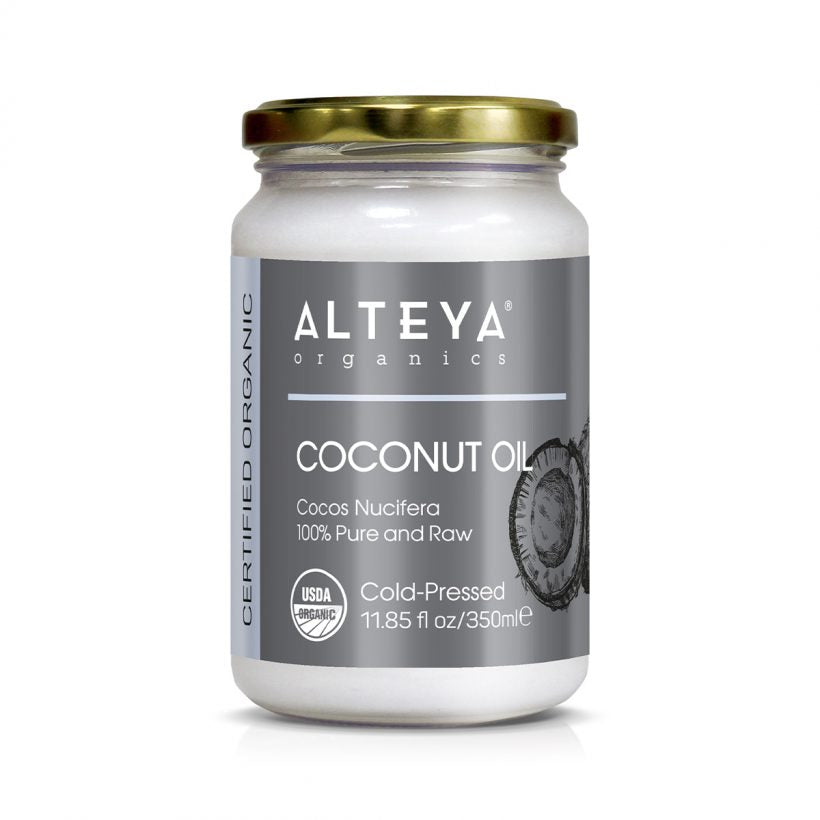
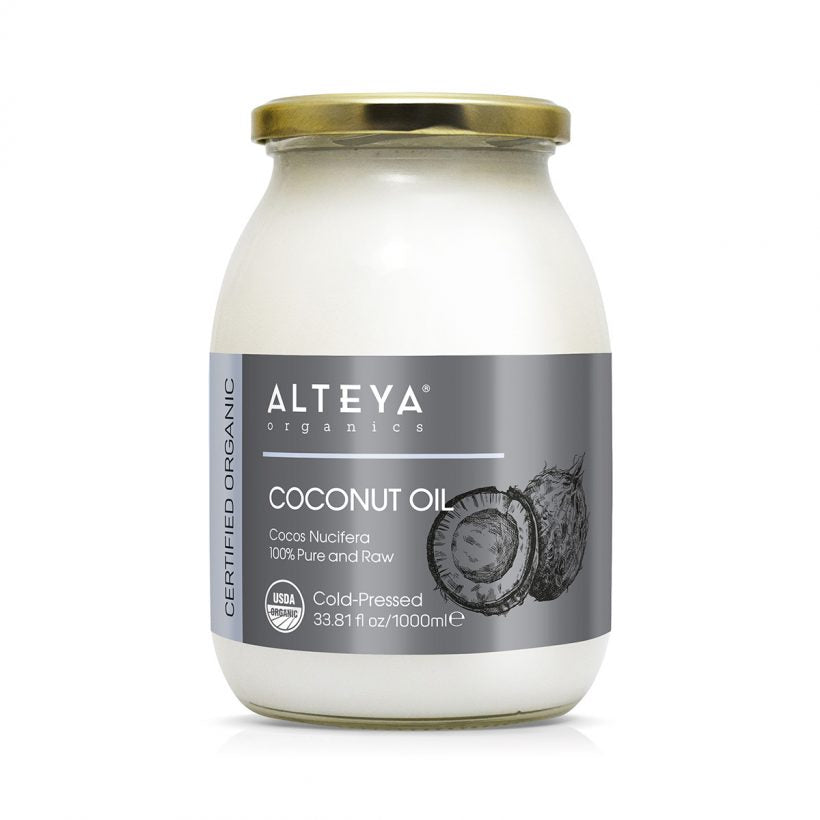
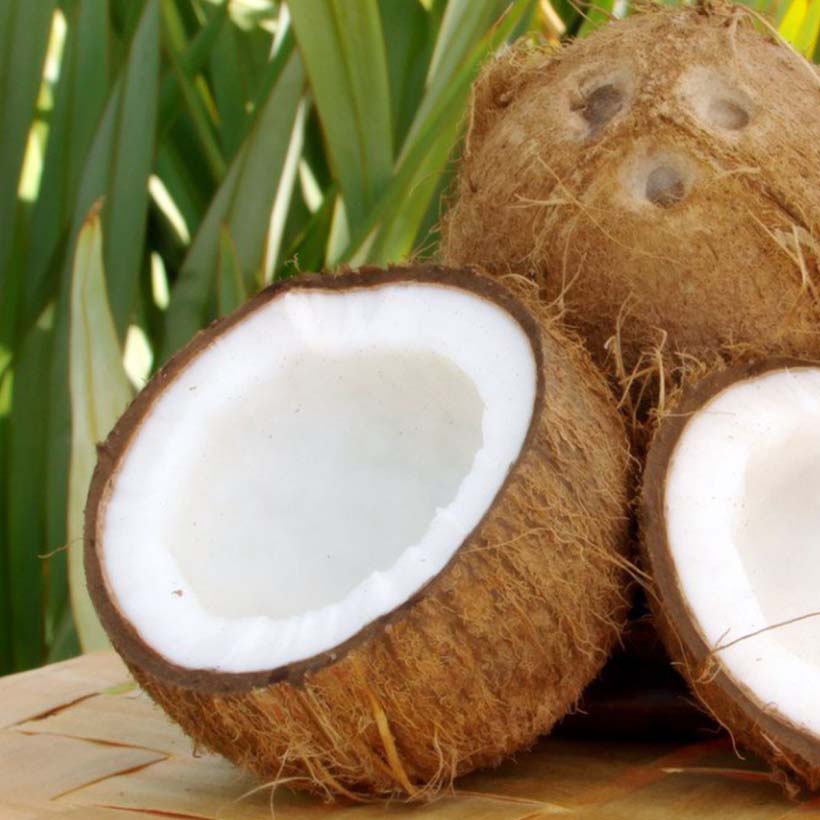

DESCRIPTION
/COCOS NUCIFERA/
Famous for its conditioning and moisturizing benefits, Coconut oil has deep and pleasant scent of pure coconut. This is a great oil for general moisturizing care and serves as a protective layer, helping to avoid moisture loss of skin. Coconut oil is without a doubt, the number one lather-producing agent used in soaps.
Coconut oil has snow white colour and is hard in consistency when kept at room temperature.
Extraction method: Cold Pressed
Absorption rate: Average
Aroma: Moderate
SUGGESTED USE
Scoop a pea-sized amount of Coconut oil into your palm then massage it onto your skin as it melts. The melted butter will glide on like a body oil and absorb into the skin within minutes.
Use Coconut oil on your hair as a pre-poo deep conditioning treatment – work it into your strands from roots to tips and allow to sit in your hair for an hour. Rinse out well and wash hair as normal.
Melt a tiny amount of Coconut oil between your palms, then dab it onto the tips of your hair to help moisturize and condition dry ends.
INGREDIENTS
INCI: Cocos Nucifera (Coconut) Oil*
*Certified Organic Ingredient
ADDITIONAL INFORMATION
For external use only. Keep out of reach of children. Avoid contact with eyes. If irritation occurs, discontinue use. Store in a cool, dry place, away from direct sunlight.
Jojoba oil
In technical terms, the cold press jojoba extract is not oil (since it does not contain fatty acids) but a wax ester. This is exactly why its chemical structure is very similar to natural skin sebum. Jojoba oil is suitable for all types of skin because it balances oily skin, helps against acne and improves the condition of dry skin. Jojoba oil is rich in Vitamin E and B-complex, which makes it a valuable, nourishing cosmetic product ingredient.
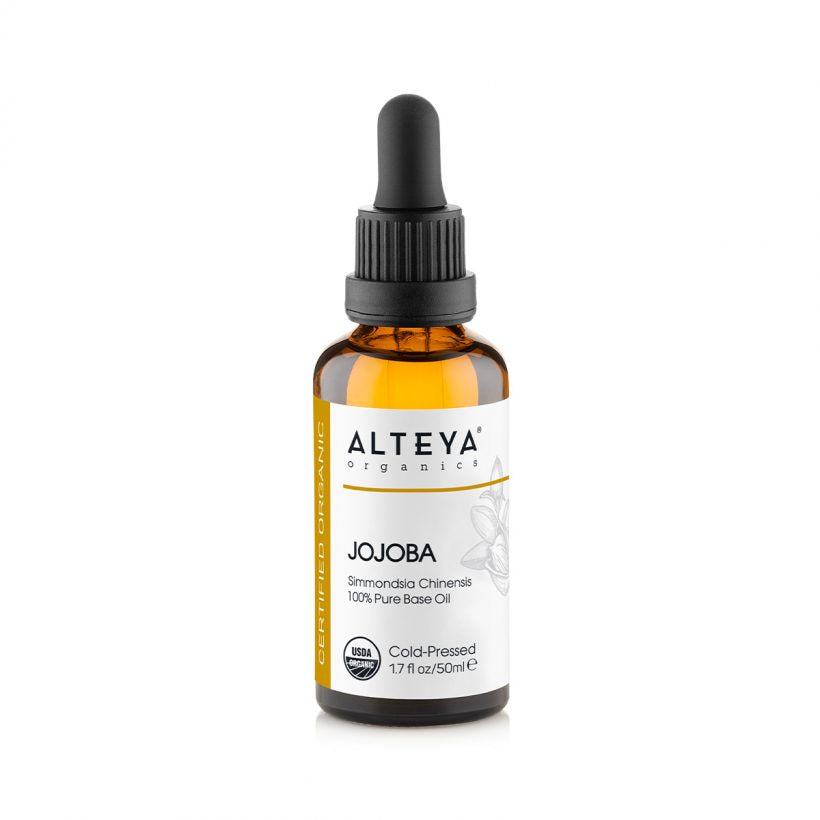
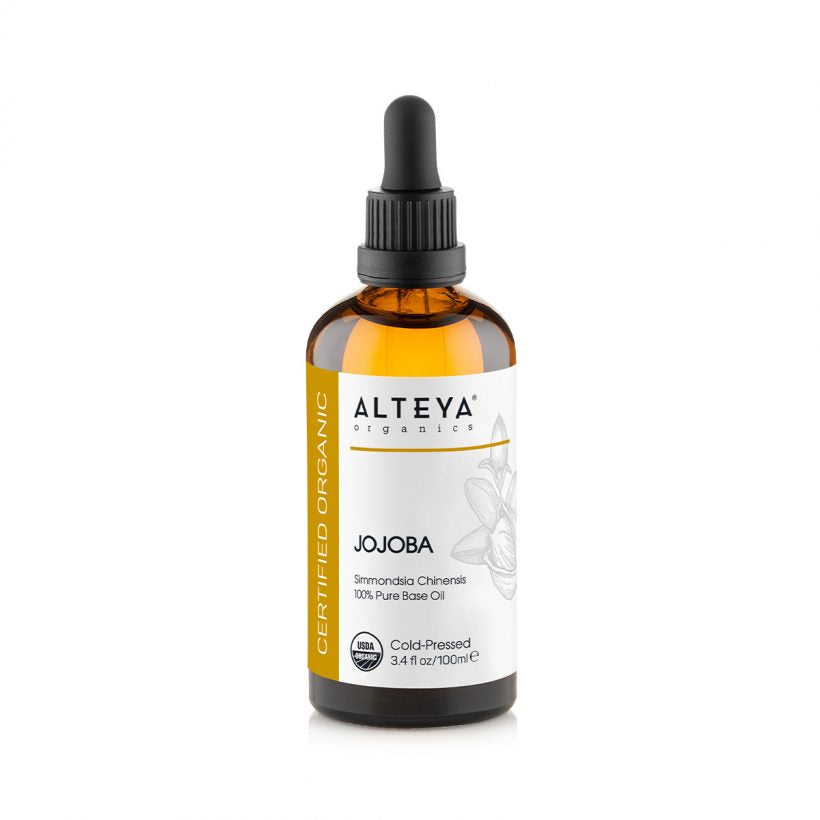
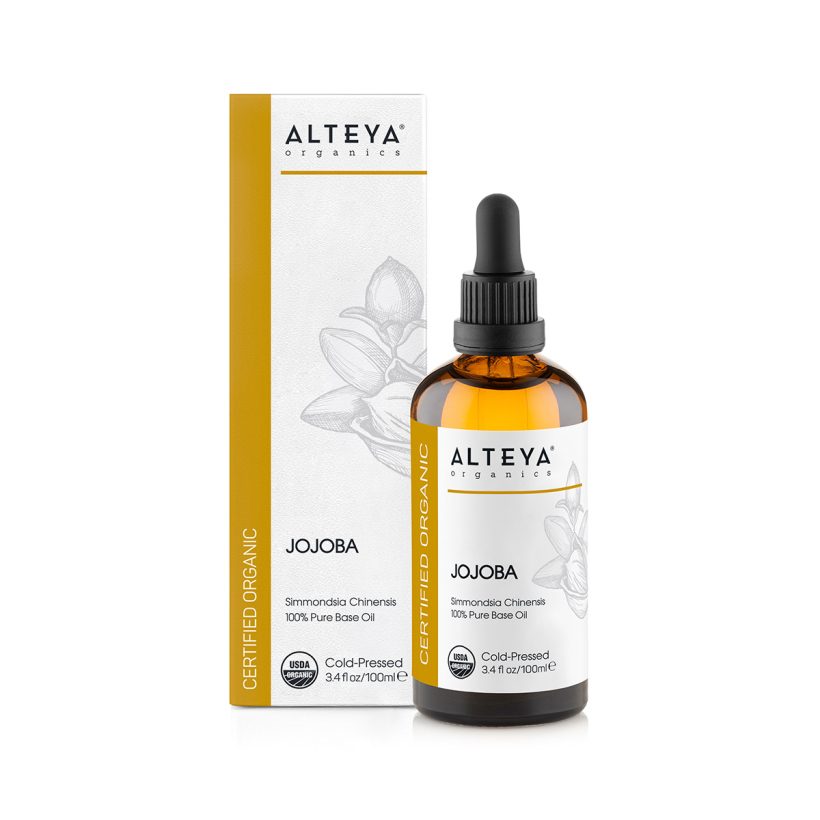
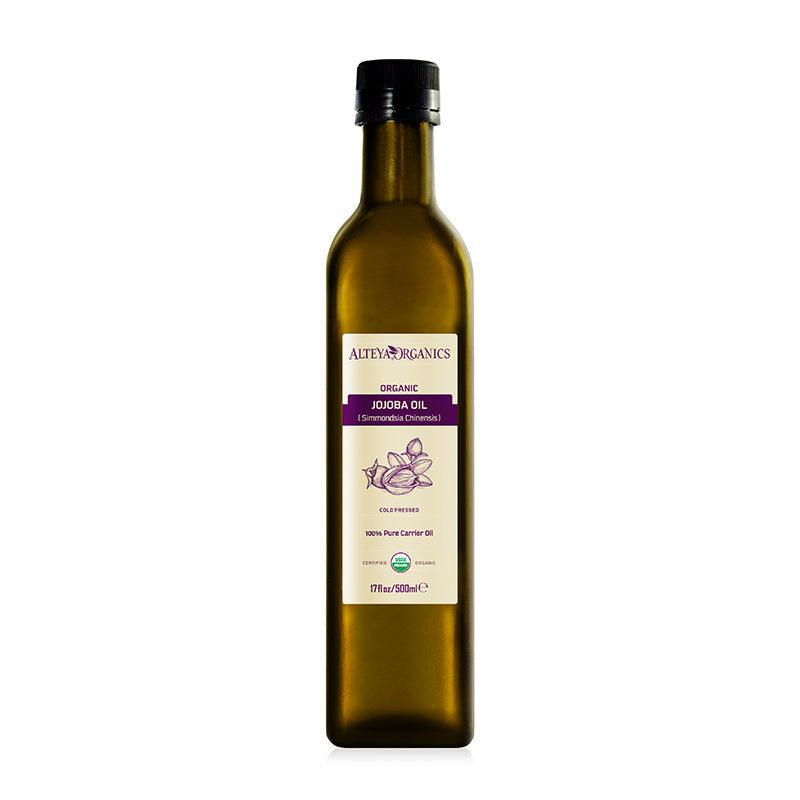
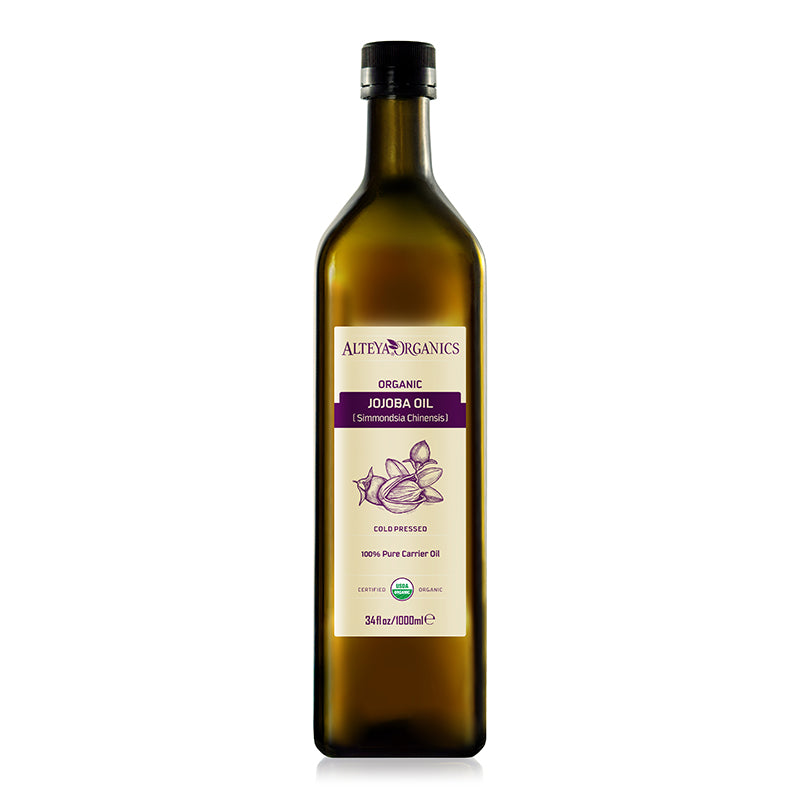
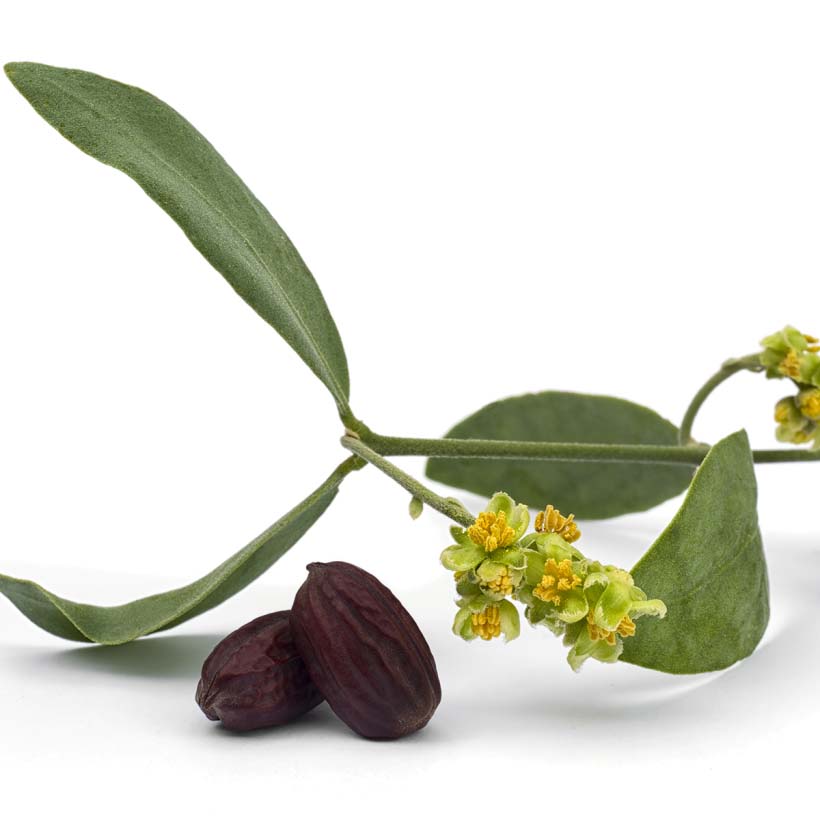

DESCRIPTION
Jojoba oil is practically liquid wax, which is very similar to the sebum of human skin. Rich in antioxidants and essential nutrients, gentle Jojoba oil hydrates and balances skin, and reduces the appearance of fine lines and wrinkles. This multi-purpose beauty oil tames irritation and encourages a healthy natural glow.
Extraction method: Cold Pressed
Absorption rate: Average
Aroma: Light
SUGGESTED USE
It may be used in skincare formulations or on its own. Can be used within most skincare formulas, including facial care preparations, soapmaking, massage oils and other body care and cosmetic products.
Skin Application—apply a few drops daily or as needed to entire face – on its own or after water-based treatments. Use only as directed on unbroken skin.
Hair Application—add a few drops on the scalp and hair lengths. Let it stay for 30 min to an hour. Then wash with shampoo.
INGREDIENTS
Simmondsia Chinensis (Jojoba) Seed Oil*
*Certified Organic Ingredient
ADDITIONAL INFORMATION
For external use only. Keep out of reach of children. Avoid contact with eyes. If irritation occurs, discontinue use. Store in a cool, dry place, away from direct sunlight.
Argan oil
Argan oil, also called “Marocco’s liquid gold” has been used by the local population for centuries. It is rich in Vitamin E and essential fatty acids. It is especially effective against fine lines and wrinkles, while improving skin elasticity at the same time. It is suitable for face, body and hair as it provides deep hydration without clogging skin pores.
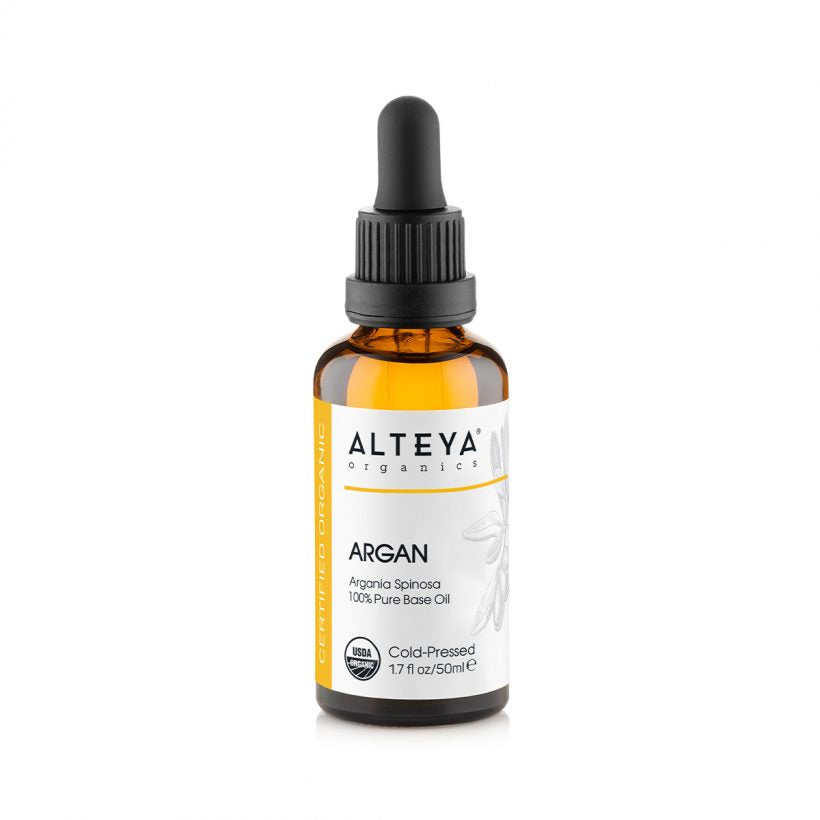
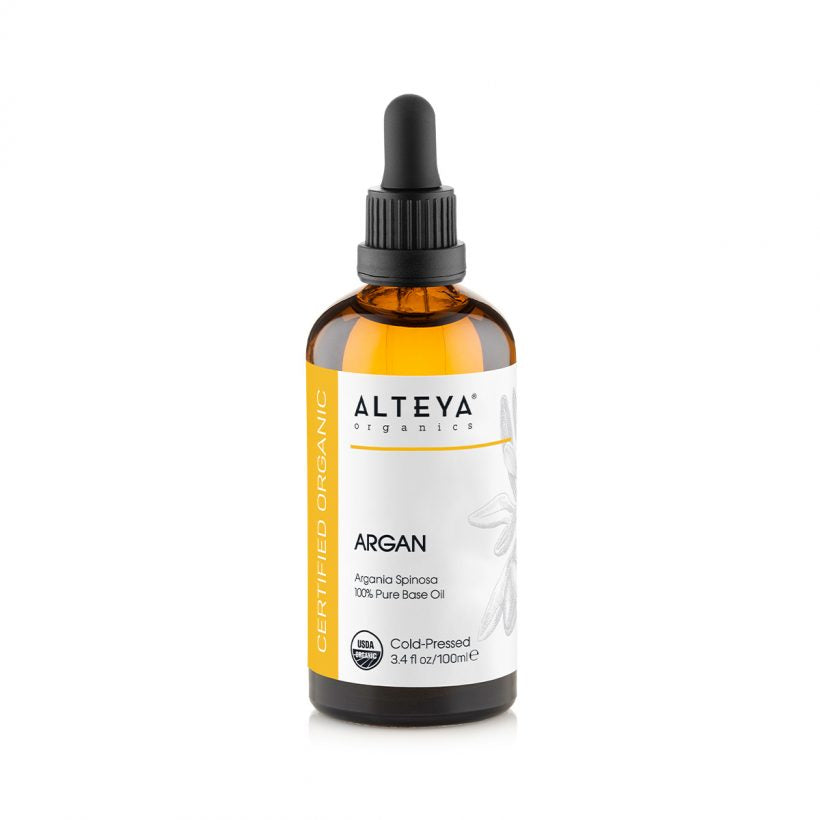
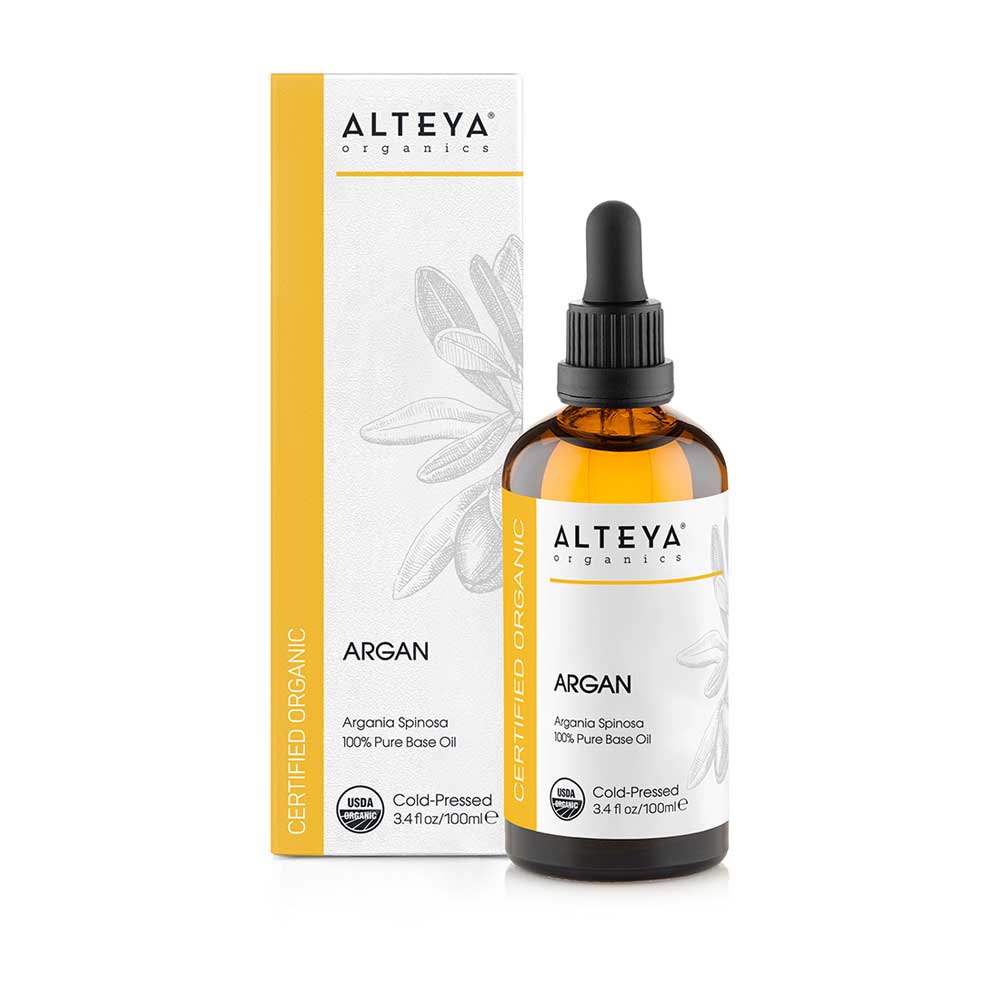
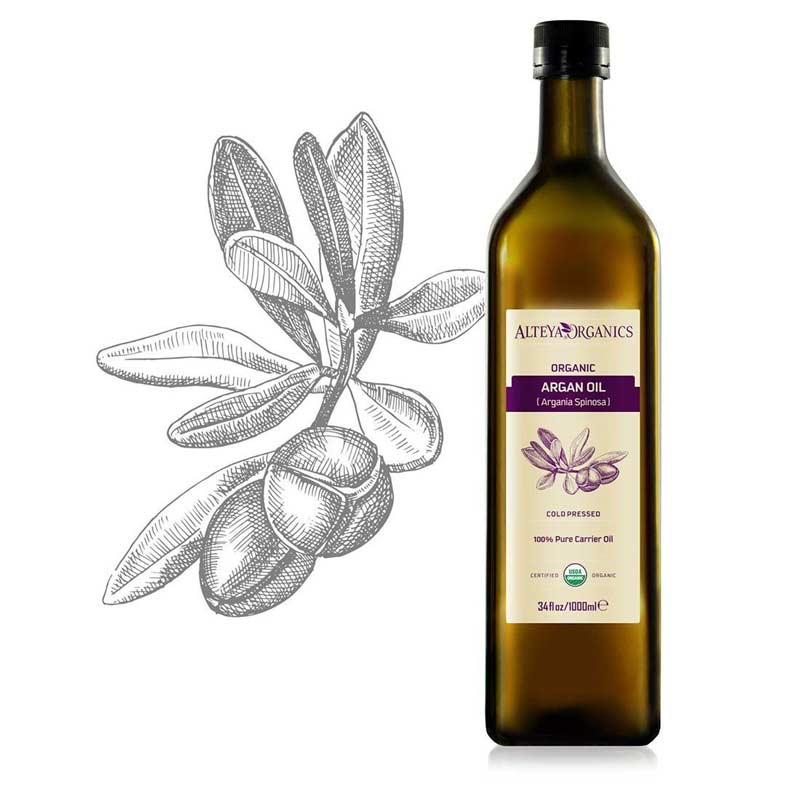
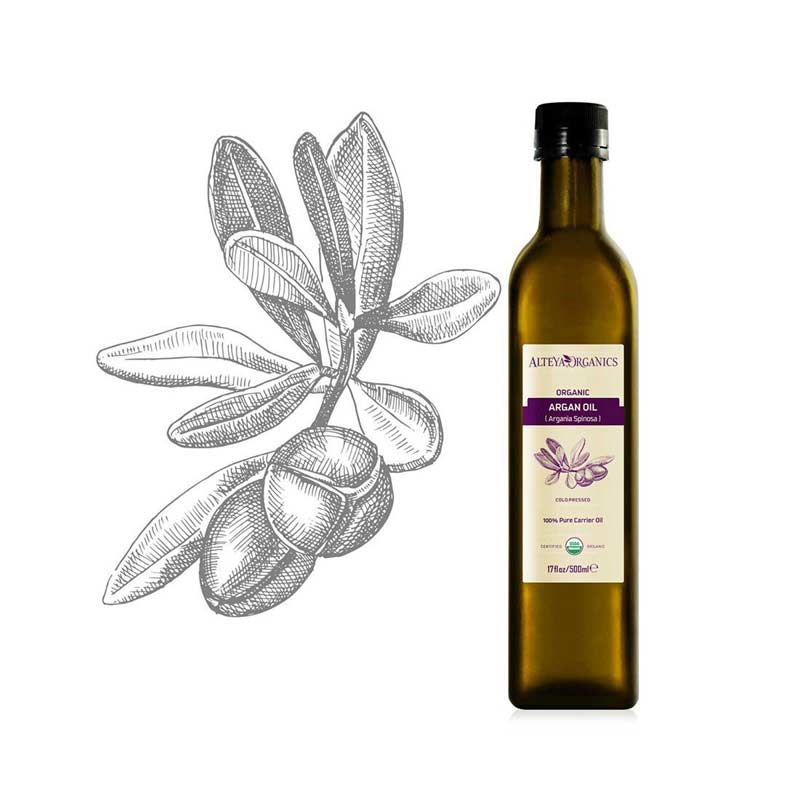
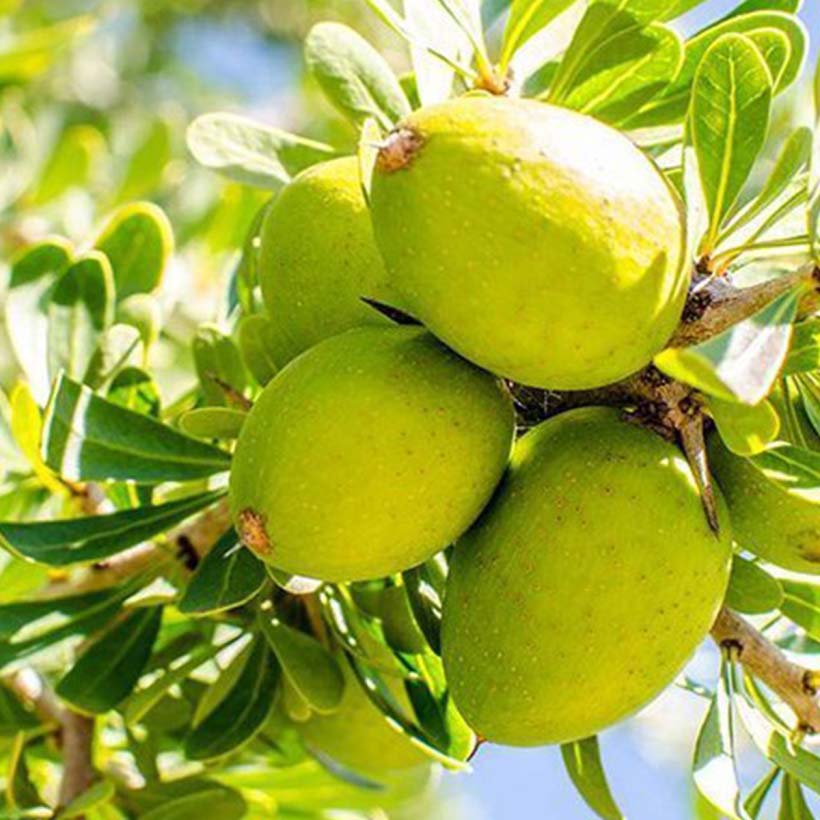
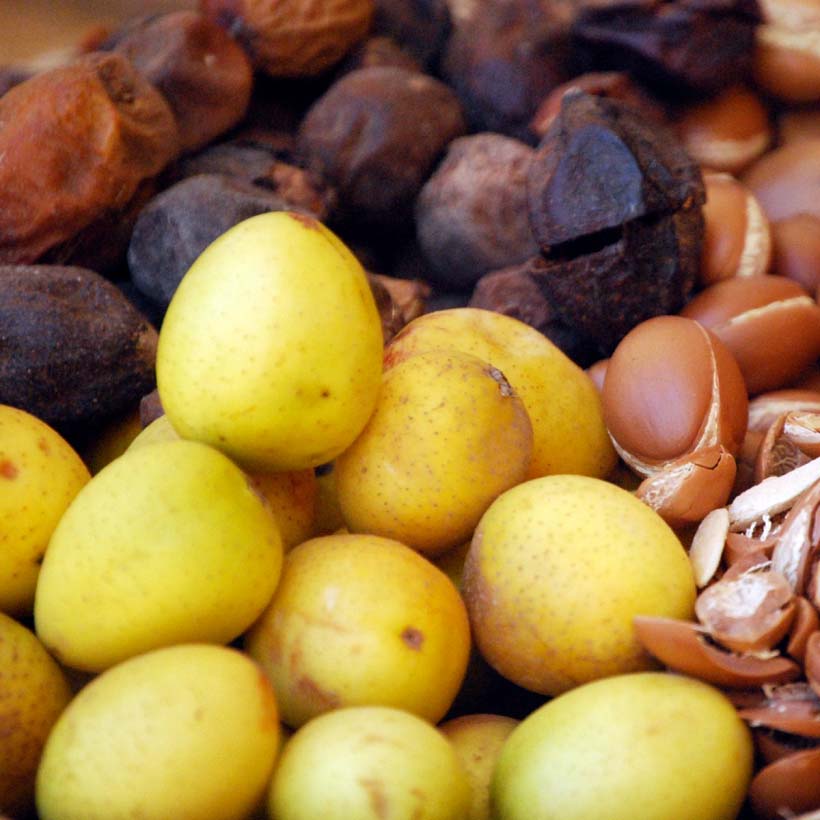
DESCRIPTION
/ARGANIA SPINOSA/
Argan oil is rich in essential fatty acids, vitamins, phenols and carotenes. It supports healthy skin and hair reducing the effects of harsh environment. Argan oil contains caffeic acids – a potent antioxidant, known to significantly improve the appearance of most signs of aging.
Extraction method: Cold Pressed
Refinement technique: Deodorization
Absorption rate: Average
Aroma: Moderate
SUGGESTED USE
It may be used in skincare formulations or on its own. Can be used within most skincare formulas, including facial care preparations, soapmaking, massage oils and other body care and cosmetic products.
Skin Application—apply a few drops daily or as needed to entire face – on its own or after water-based treatments. Use only as directed on unbroken skin.
Hair Application—add a few drops on the scalp and hair lengths. Let it stay for 30 min to an hour. Then wash with shampoo.
INGREDIENTS
Argania Spinosa (Argan) Kernel Oil*
*Certified Organic Ingredient
ADDITIONAL INFORMATION
For external use only. Keep out of reach of children. Avoid contact with eyes. If irritation occurs, discontinue use. Store in a cool, dry place, away from direct sunlight.
Castor oil
If you happen to be a mystery lover or if you like reading fiction crime stories, perhaps the name of this oil rings a bell and sounds a bit startling. In fact, the castor oil plant (Ricinus Communis) is toxic. Rest assured though, that castor oil is not toxic because in the process of production, it goes through a special stage when the toxic elements (ricin and ricinine) break down completely. That is why castor oil is absolutely safe for cosmetic use. It has skin and hair moisturizing properties and it is considered that in this way it also stimulates hair growth. This makes castor oil a very common ingredient to be found in home-made hair mask recipes.
This has been only a small part of the rich palette of carrier oils used in skincare and aromatherapy. Each of them has their unique properties and beneficial effects, which makes them a valuable ally in our daily care for our health and beauty.
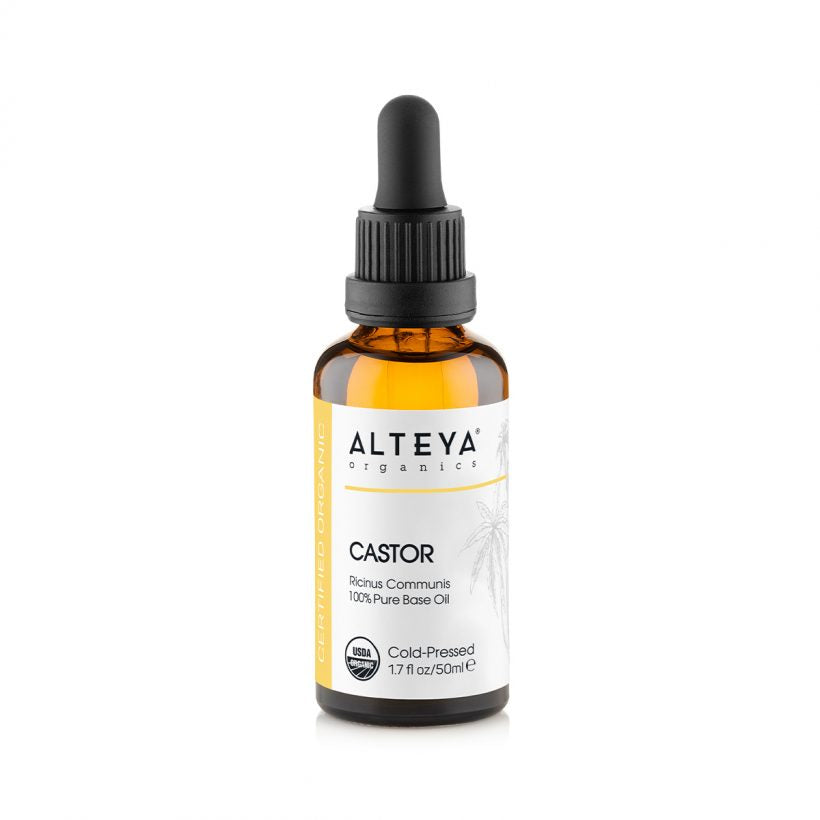
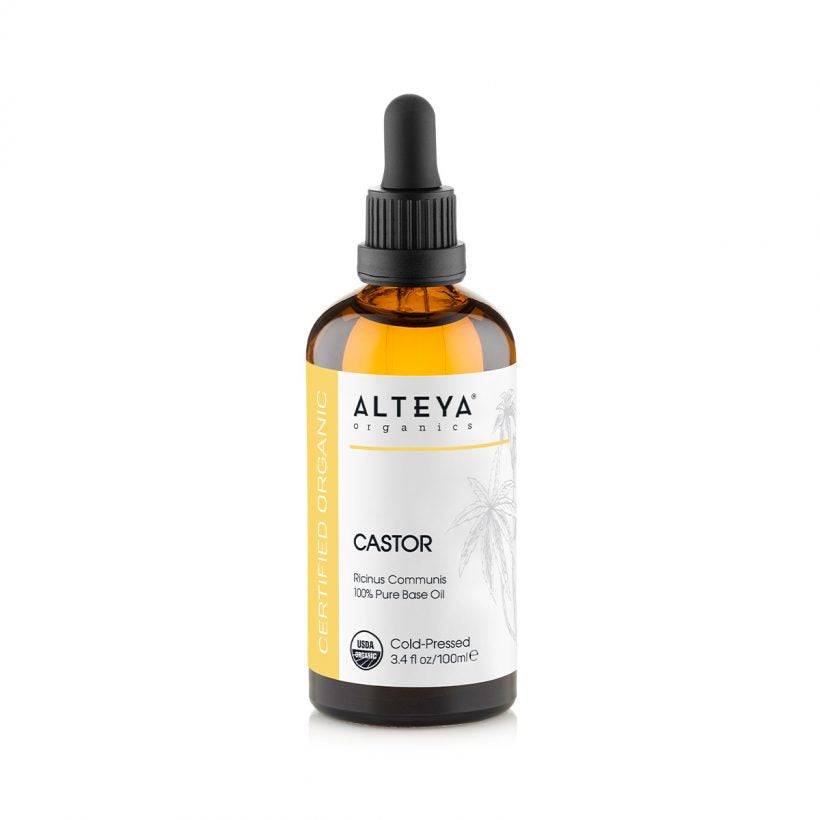
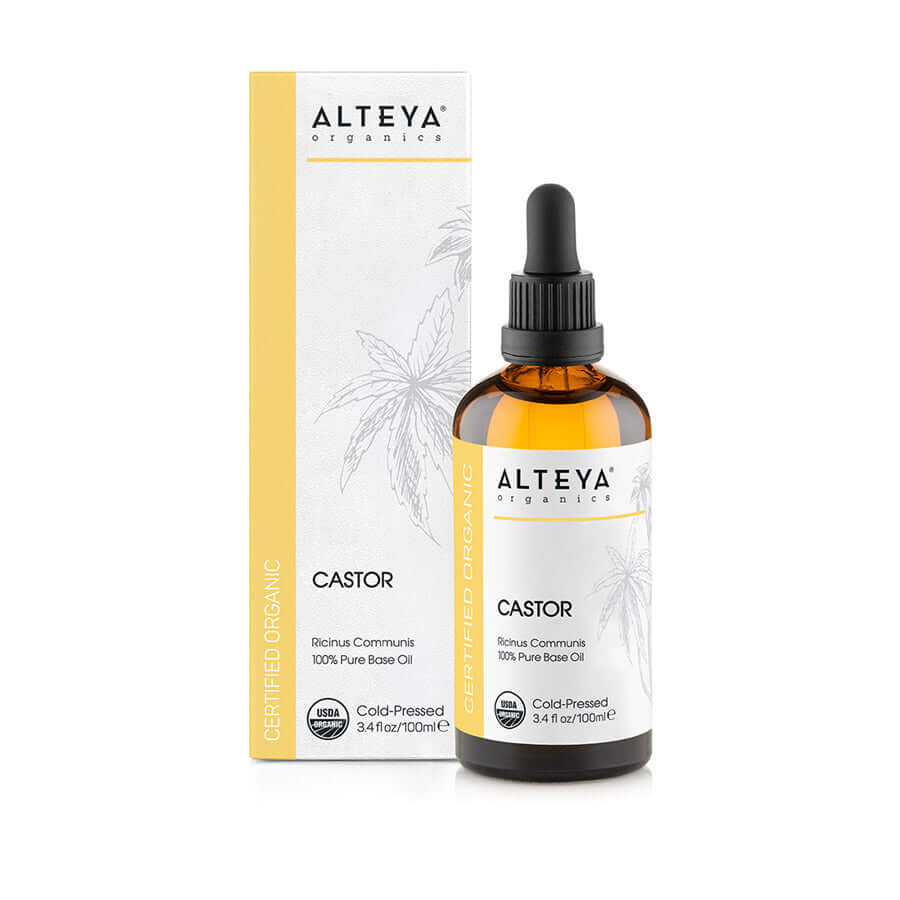
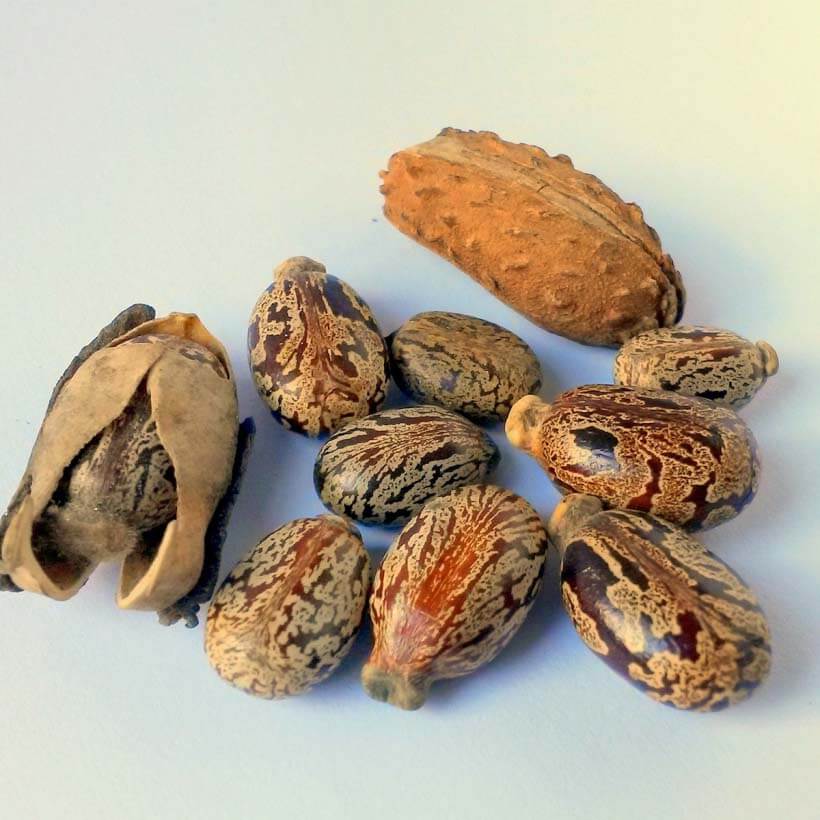
DESCRIPTION
/RICINUS COMMUNIS/
Castor oil is rich in ricinoleic acid and provides excellent hydration, making skin smooth and supple. It contains triglycerides that might be helpful in removing impurities from skin. This thick oil helps create a protective layer on hair and scalp, preventing moisture loss and is also known to encourage a healthy hair growth.
Extraction method: Cold Pressed
Absorption rate: Very Slow
Aroma: Strong
SUGGESTED USE
It may be used in skincare formulations or on its own. Can be used within most skincare formulas, including facial care preparations, soapmaking, massage oils and other body care and cosmetic products.
Skin Application—apply a few drops daily or as needed to entire face – on its own or after water-based treatments. Use only as directed on unbroken skin.
Hair Application—add a few drops on the scalp and hair lengths. Let it stay for 30 min to an hour. Then wash with shampoo.
INGREDIENTS
Ricinus Communis (Castor) Seed Oil*
*Certified Organic Ingredient
ADDITIONAL INFORMATION
For external use only. Keep out of reach of children. Avoid contact with eyes. If irritation occurs, discontinue use. Store in a cool, dry place, away from direct sunlight.
6. How should we choose a suitable oil for our skin?
The choice of an appropriate carrier oils would largely depend on your skin type and specific needs. Here are some initial guidelines you can follow:
● For dry skin:
Choose thicker, deeply nourishing avocado; shea (also known as karite) or olive extracts. They are rich in fatty acids and create a protective film on top of the skin.
● For oily and blemish-prone skin: Go for thinner oils like jojoba; grape seed or rosehip oil. They are easily absorbed and do not clog pores.
● For sensitive skin: Try tender options like sweet almond oil or wheat germ oil, which are rich in Vitamin E and have skin soothing properties.
● For mature skin: Choose oils which are rich in antioxidants such as argan oil or pomegranate seed oil, which are useful against free radicals.
Another thing you need to know is what “comedogenic index” means. This is a measure unit which shows how likely it is for a cosmetic substance to clog skin pores. The comedogenic index is measured by a scale going from 0 to 5, where 0 marks non-comedogenic substances, while 5 means strongly comedogenic ones.
The comedogenic index is a useful tool but it is not absolutely conclusive. It means that even oils marked with index 5 have their place in cosmetics – in small concentrations or for extremely dry and dull, lackluster skin. Another thing to consider is that the comedogenic index can change depending on the other ingredients you decide to use. It might sound surprising but it is true that sometimes when mixing extracts with low comedogenic index, the end-result might be a product with a higher index.
In case all this sounds too complicated to you and if you prefer to use ready-made cosmetic solutions, you can always trust Alteya Organics’ products. They have been developed for different types of skin; they are certified organic products and meet highest quality standards.
Skincare
7. Proper care and storage of carrier oils
Proper storage is of crucial importance for preserving the valuable properties of carrier oils. There are 4 important things to consider if you want to preserve the quality of your carrier oils for as long as possible:
● Light: Most carrier oils should not be exposed to sunlight since it can accelerate the process of oxidation. For proper storage use dark glass bottles or keep them in a dark cupboard.
● Temperature: The ideal temperature for most carrier oils is between 10°C and 25°C. Avoid exposure to extreme temperatures.
● Air: The oxygen in the air accelerates the process of oil decomposition. Make sure that you always close the bottle tightly after use and avoid leaving too much air-filled space in the container.
● Packaging: The best choice are dark glass bottles with dropper caps. Plastic containers may interact with the oils inside and cause their quality to deteriorate.
Do not miss to pay attention to the expiry date of the product. The shelf life of most carrier oils is between 6 months and 2 years but it can vary widely depending on the type of oil and storage conditions.
It is highly recommended to check all your carrier oil products regularly and to immediately change the ones whose shelf life has expired.
8. Myths about carrier oils
Myth: All carrier oils clog skin pores and cause acne.
Fact: Not all carrier oils are comedogenic (i.e., clog pores). For example, jojoba oil; grape seed oil and rosehip oil are non-comedogenic and can even have a beneficial effect on blemish-prone skin.
Myth: Carrier oils are not suitable for oily skin.
Fact: Some thinner types of oils, like jojoba oil can help regulate the production of sebum and thus improve the condition of oily skin.
Myth: Carrier oils are panacea for all skin problems.
Fact: Although carrier oils have multiple benefits, they are not a cure-all skin problems solution. Some skin conditions require specific medical treatment and consultation with a dermatologist.
Myth: Edible carrier oils, bought from the supermarket can be used for skincare
Fact: Although some edible carrier oils can be used for skincare, it is better to use ones which have been particularly developed for cosmetic purposes.
Carrier oils are wonderful extracts, possessing various properties, which have a wide range of applications in aromatherapy, skincare and hair care. The key to enjoying their beneficial effect is to carefully chose which ones to use, depending on your personal needs. Experiment with different oils until you find out which ones work best for you.
Regardless of whether you use them separately or as part of a more complex cosmetic formulas, carrier oils can be a valuable addition to your daily skincare and hair care routine. Remember that we are all unique human creatures and what works good for one may not be good for another. Pay attention to the signals your skin gives you and do not hesitate to consult a dermatologist in case you have specific dermatological conditions or need further information.




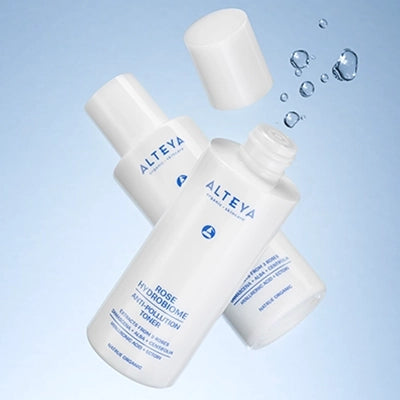
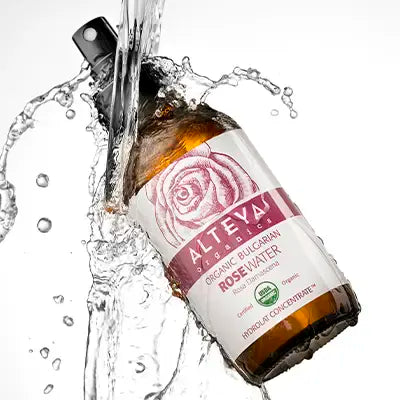
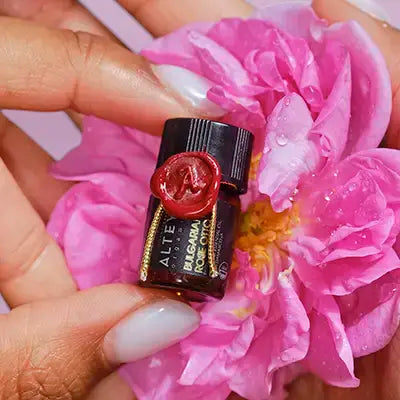
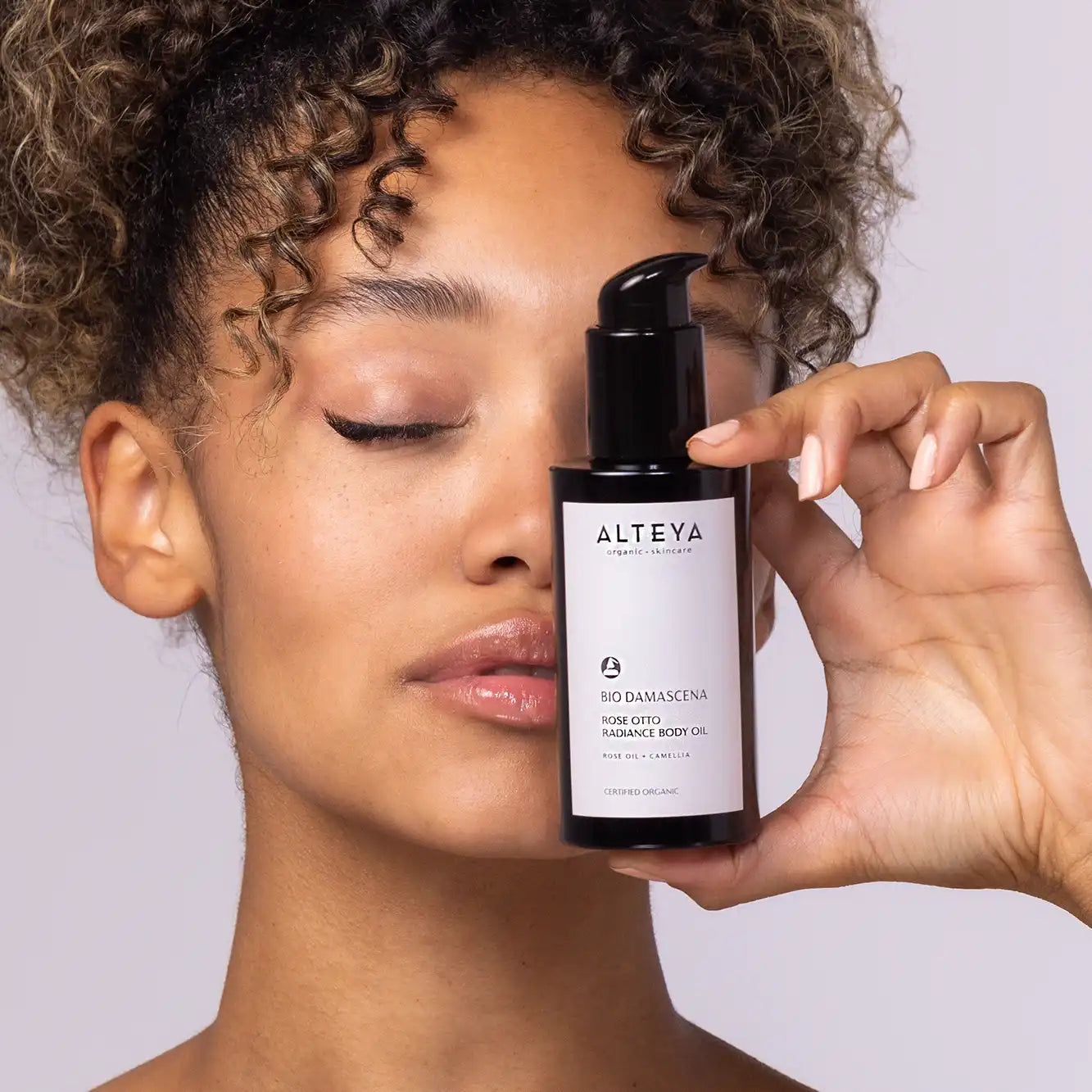
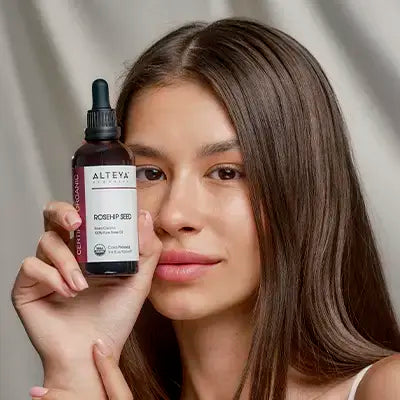
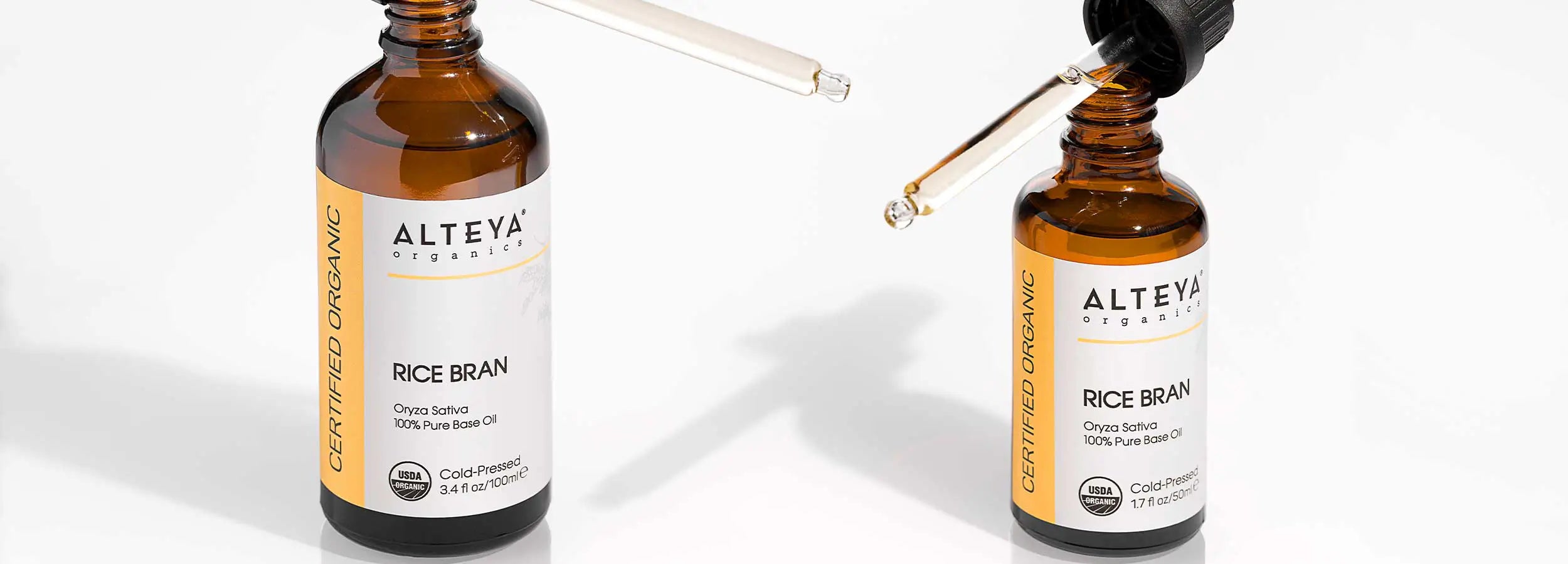
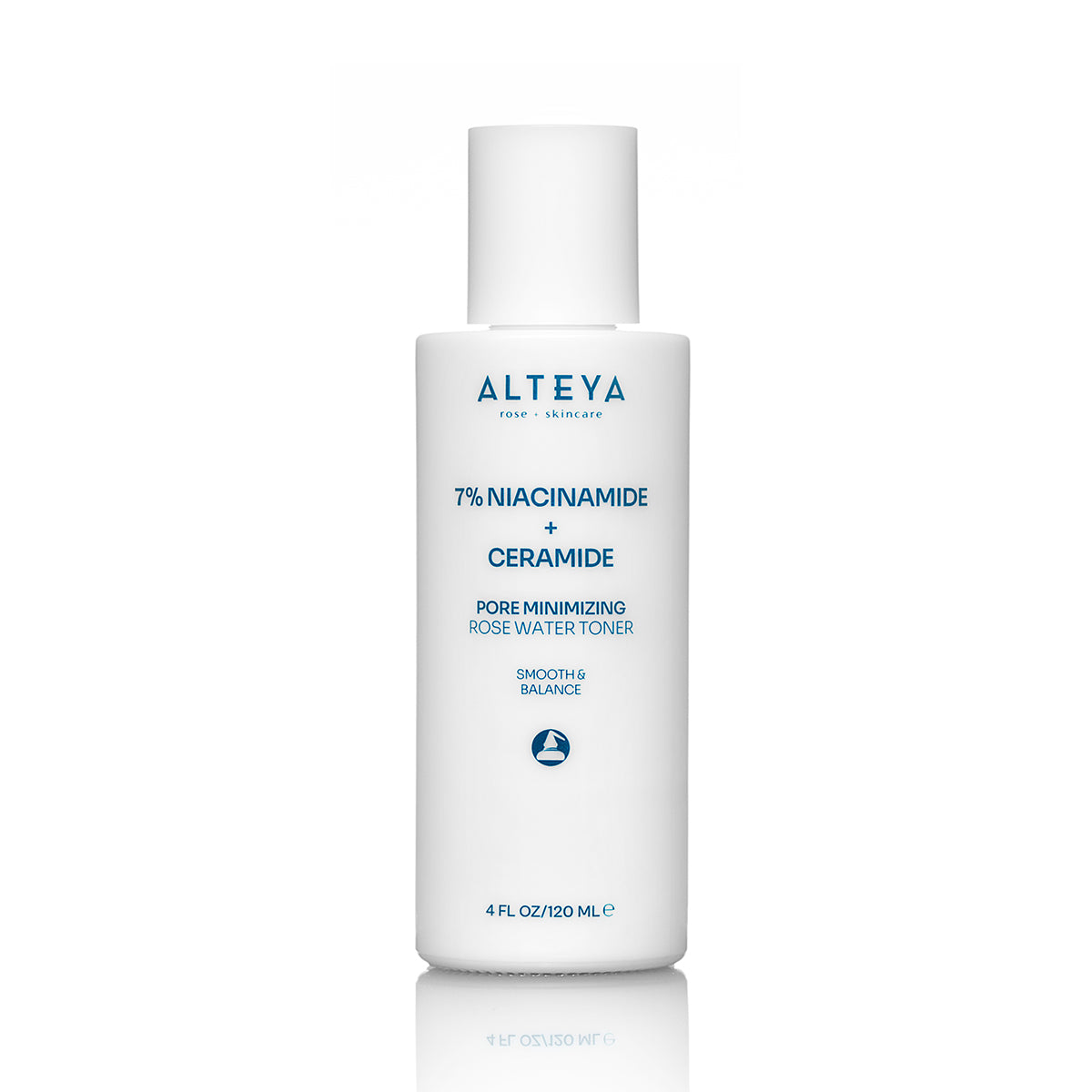
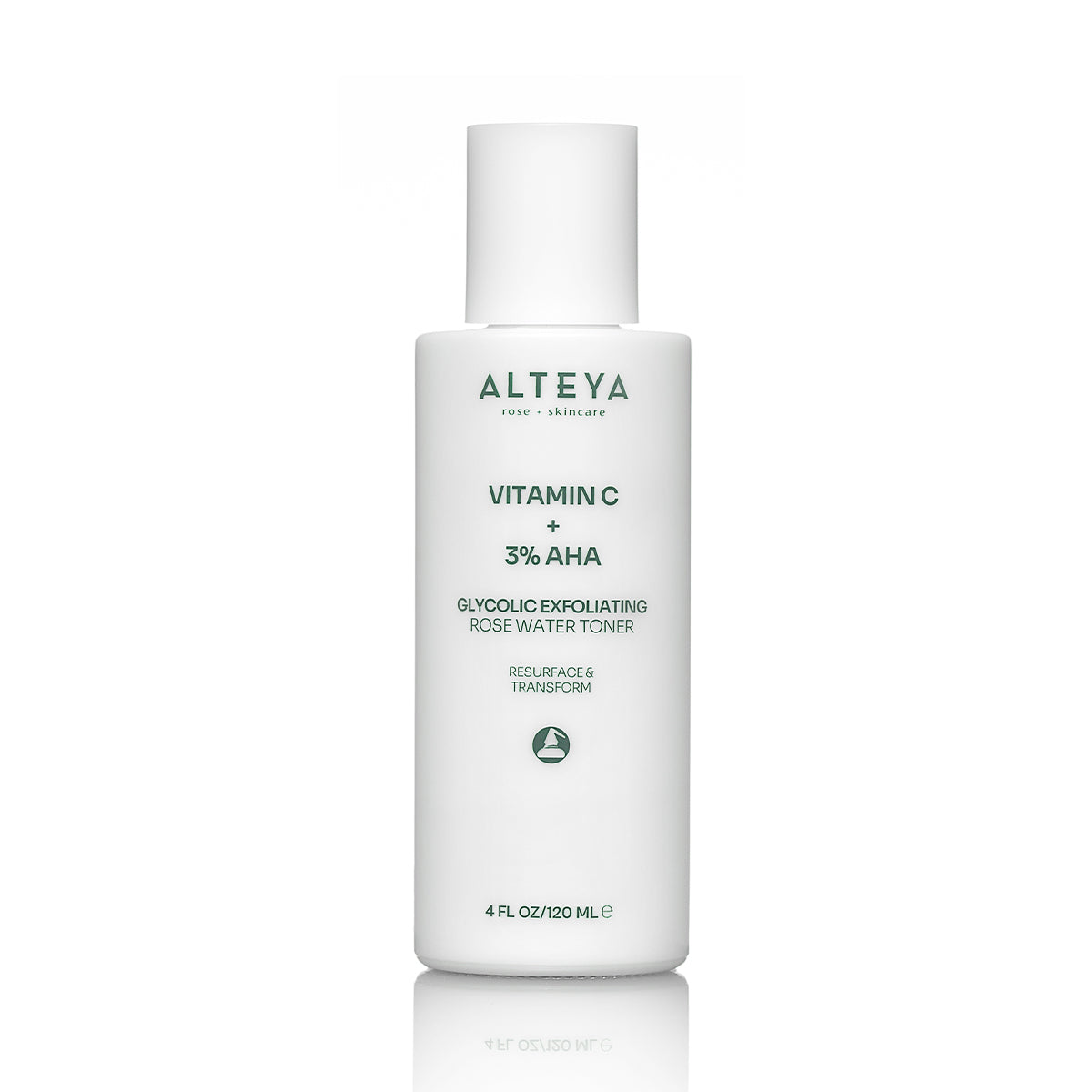
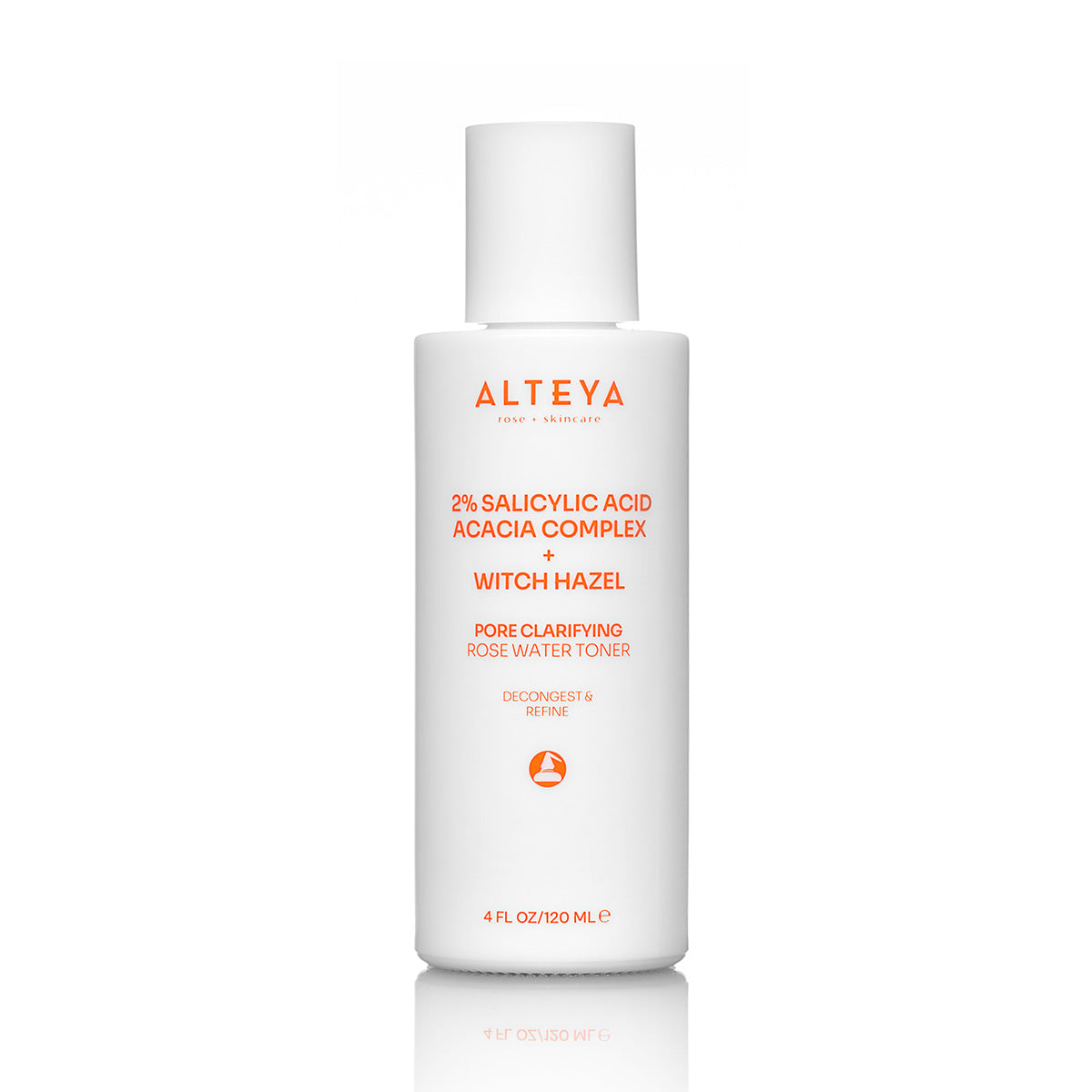
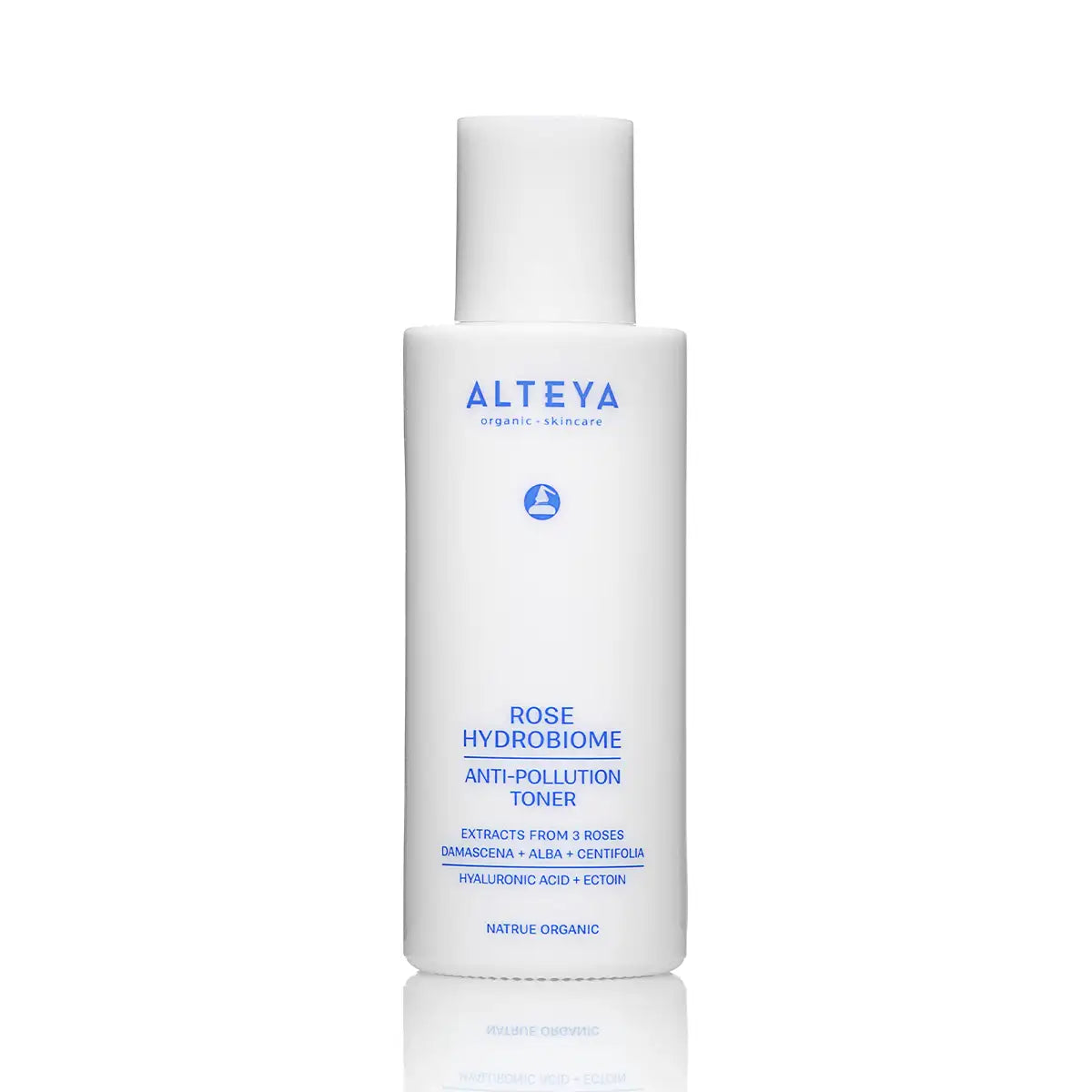
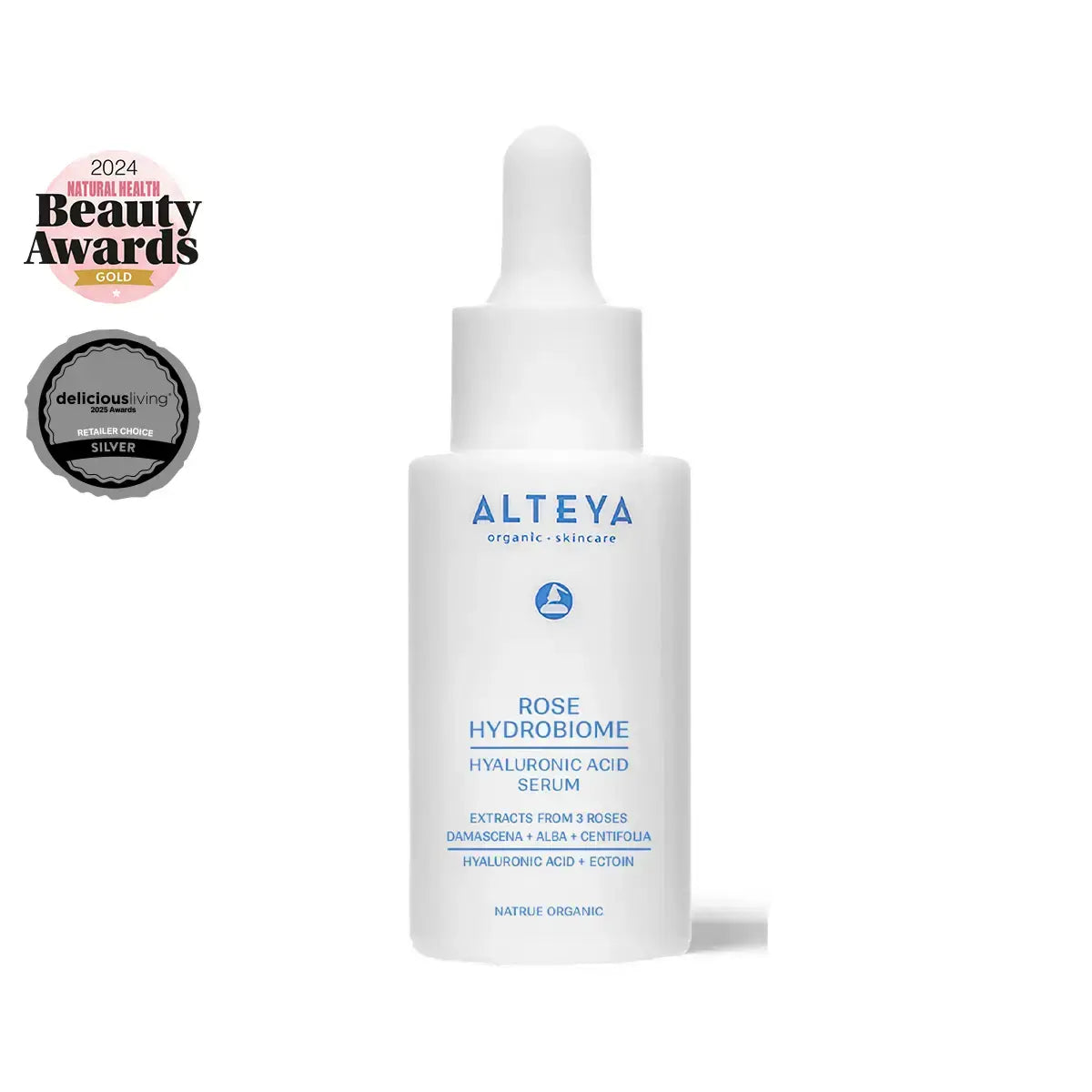
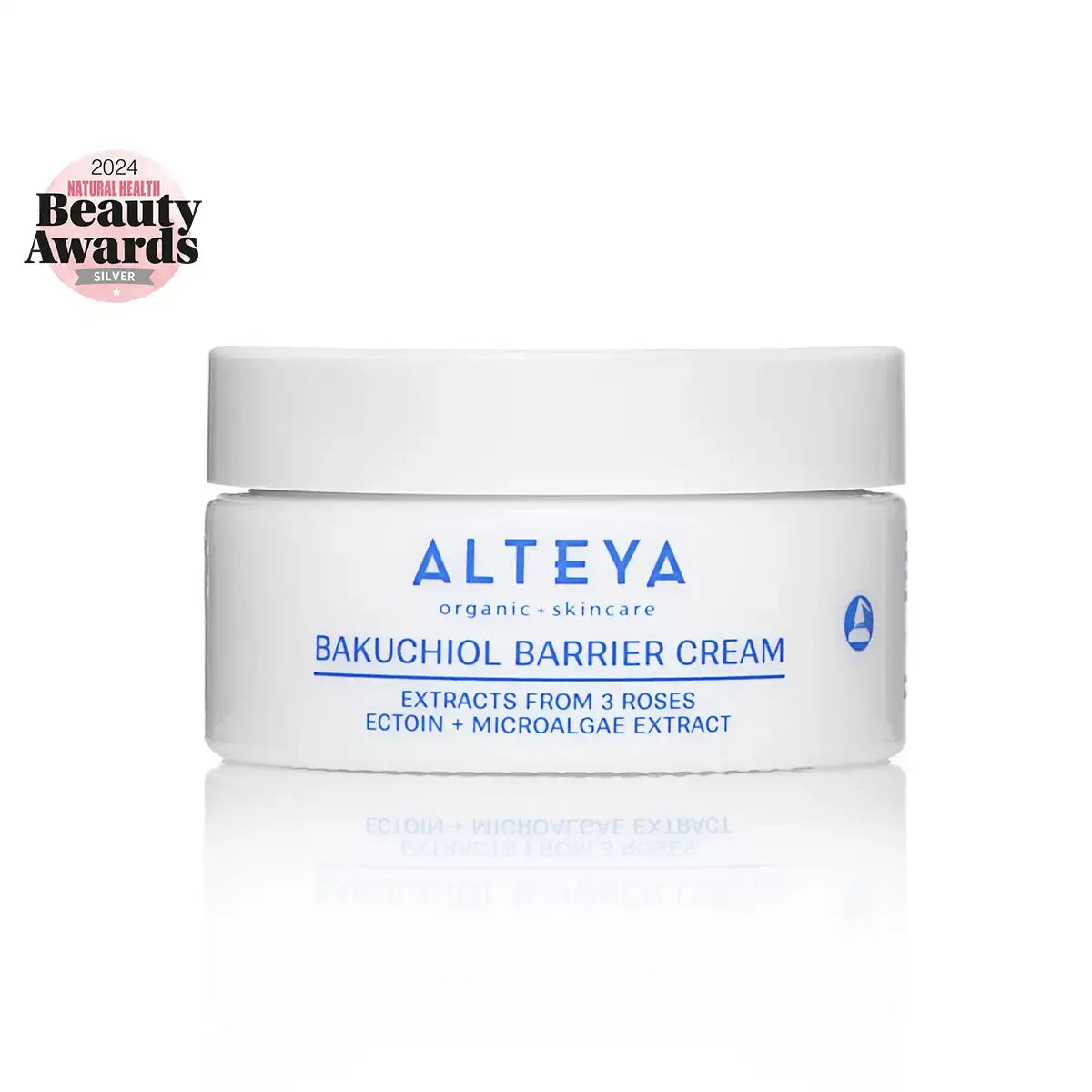
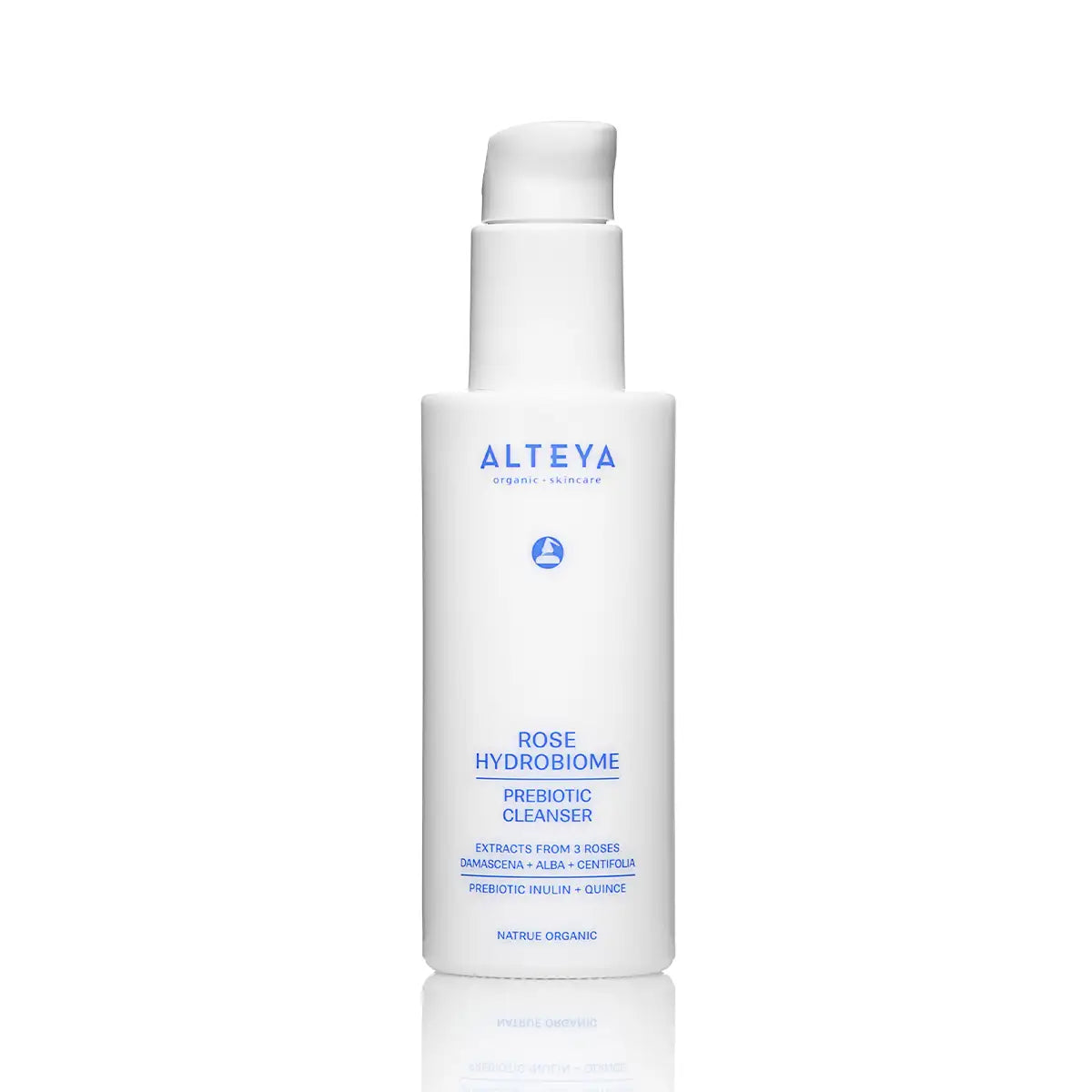
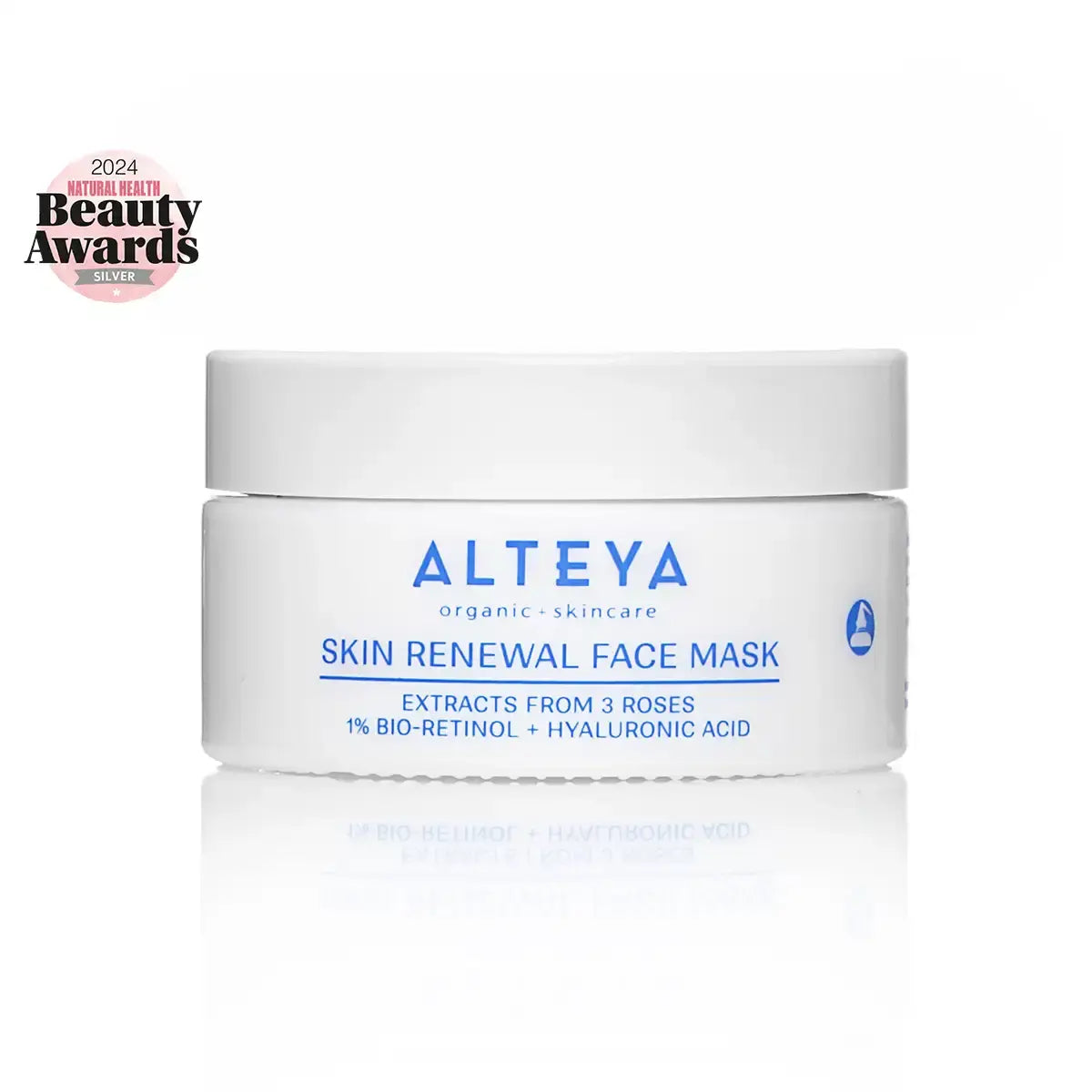

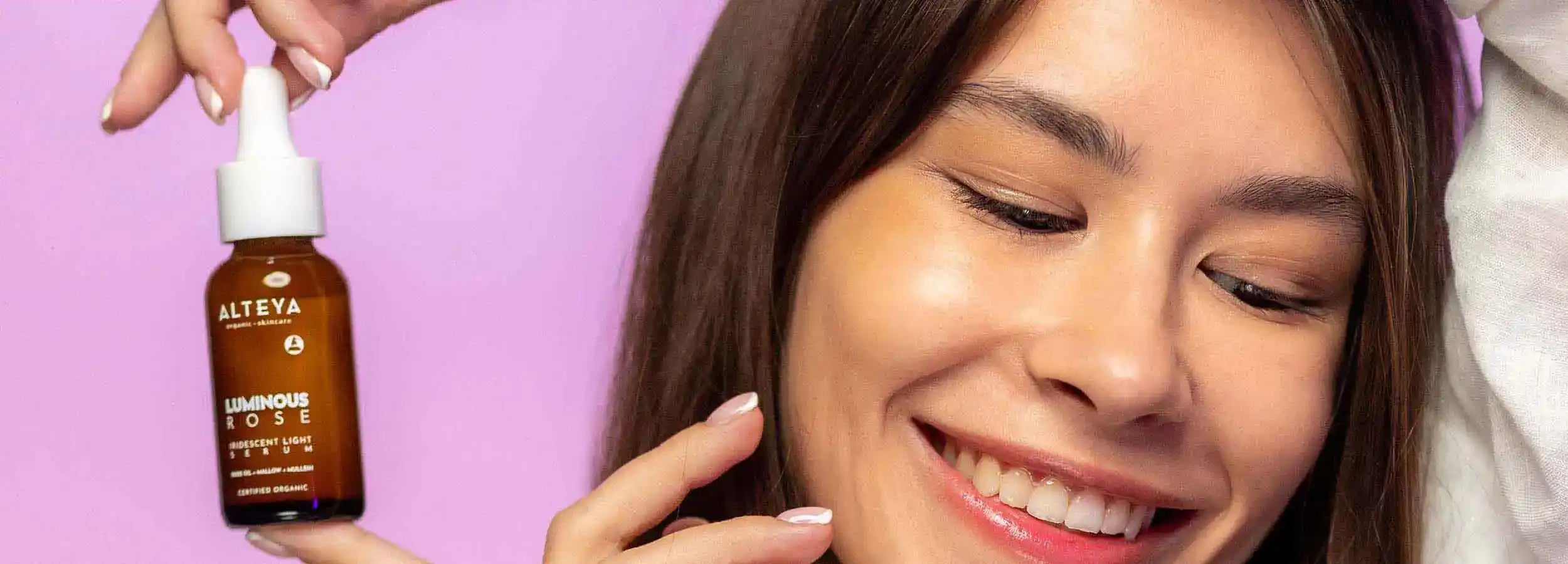
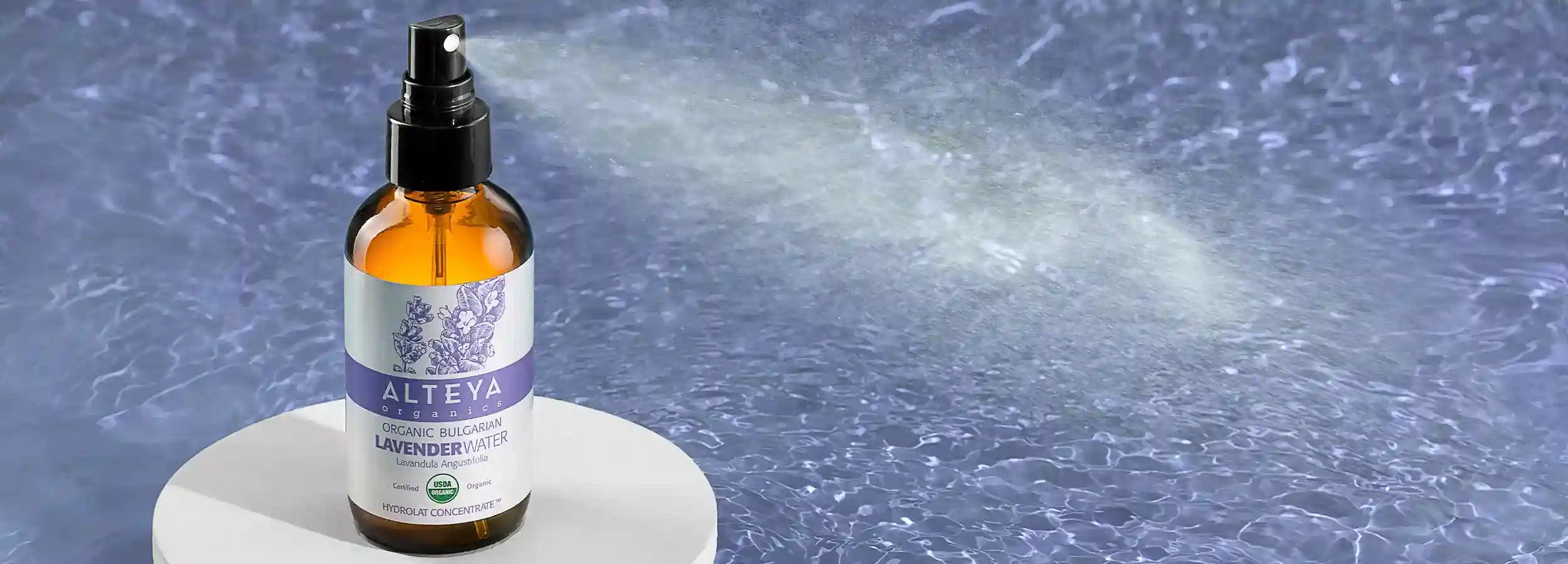
Leave a comment
This site is protected by hCaptcha and the hCaptcha Privacy Policy and Terms of Service apply.